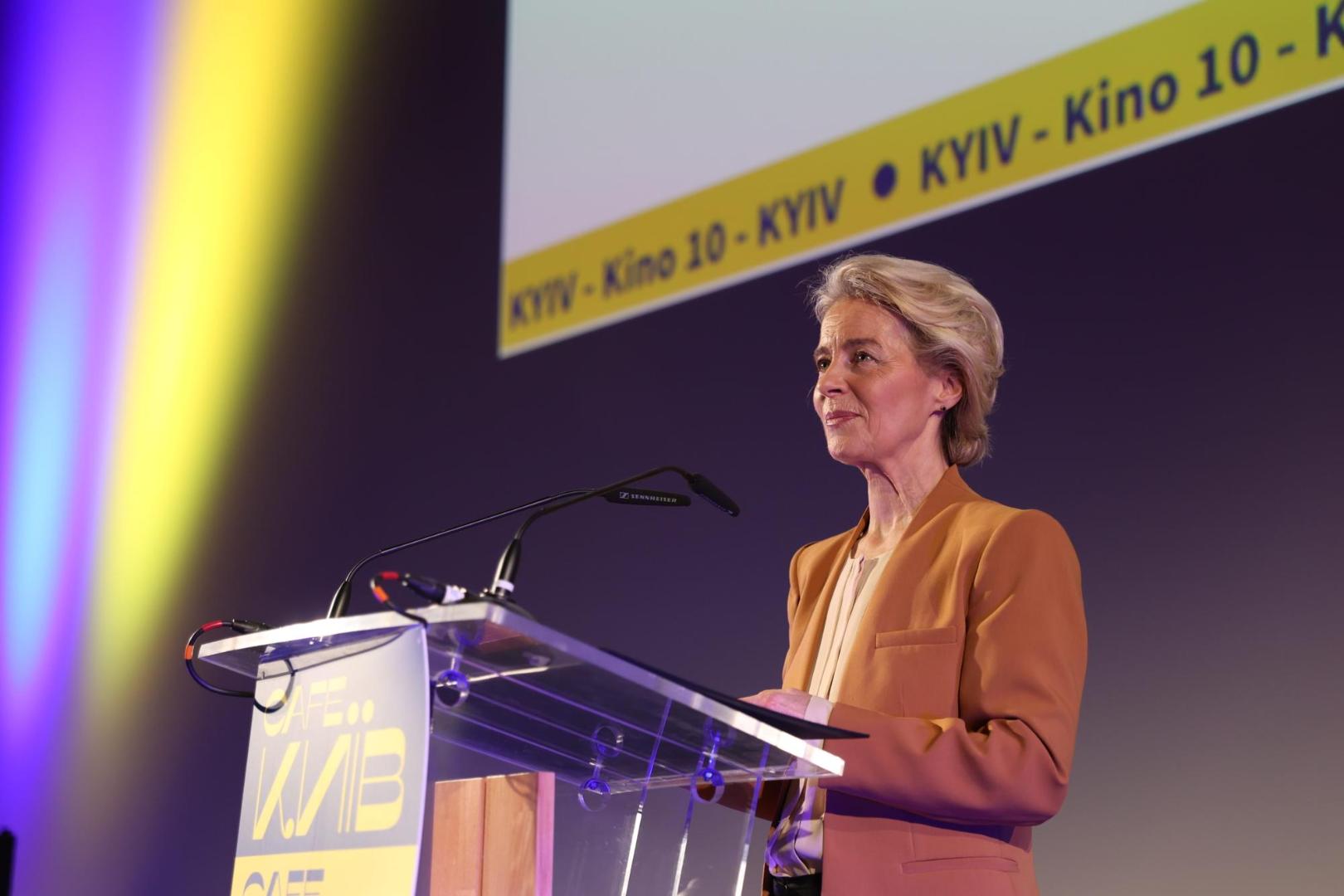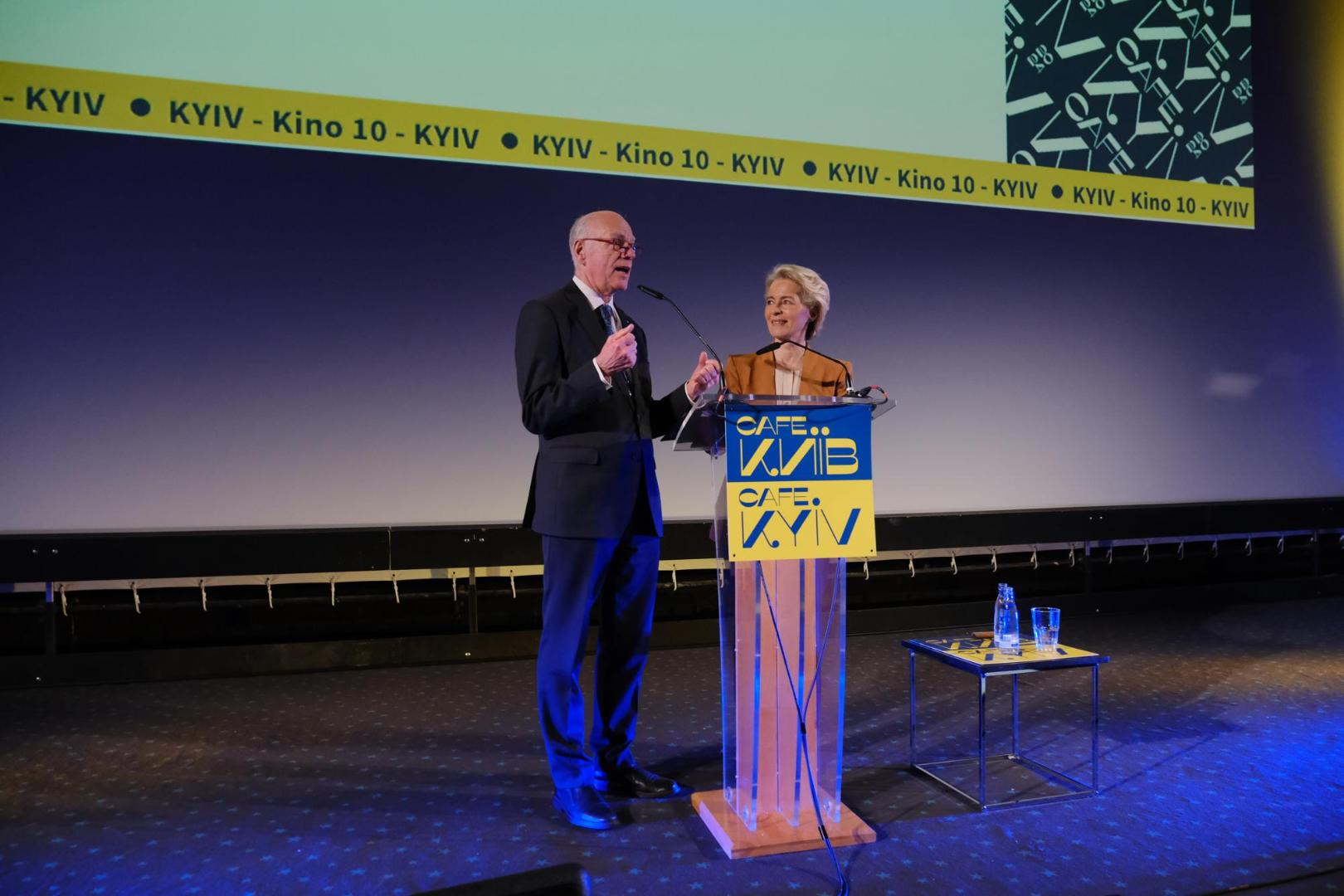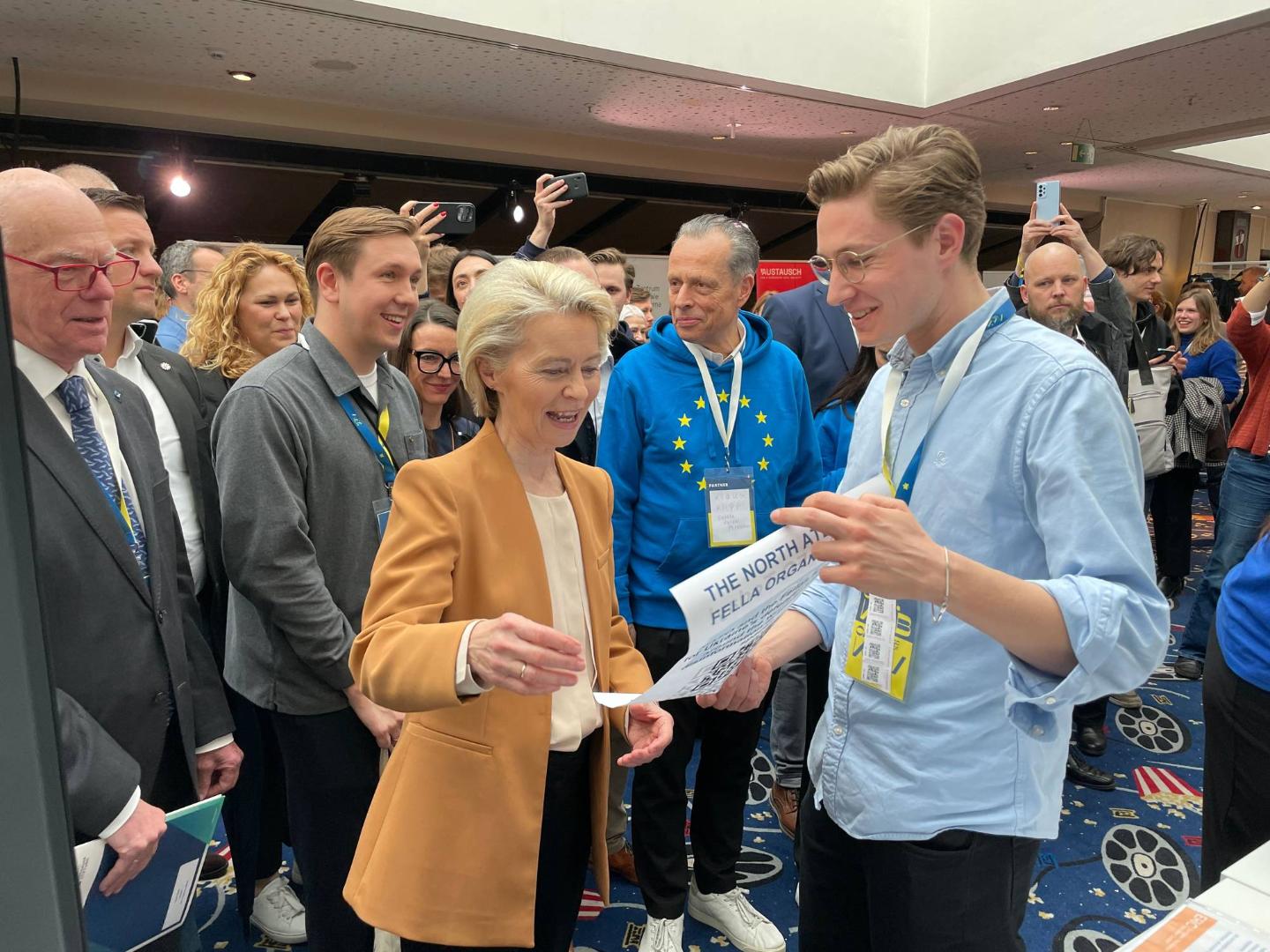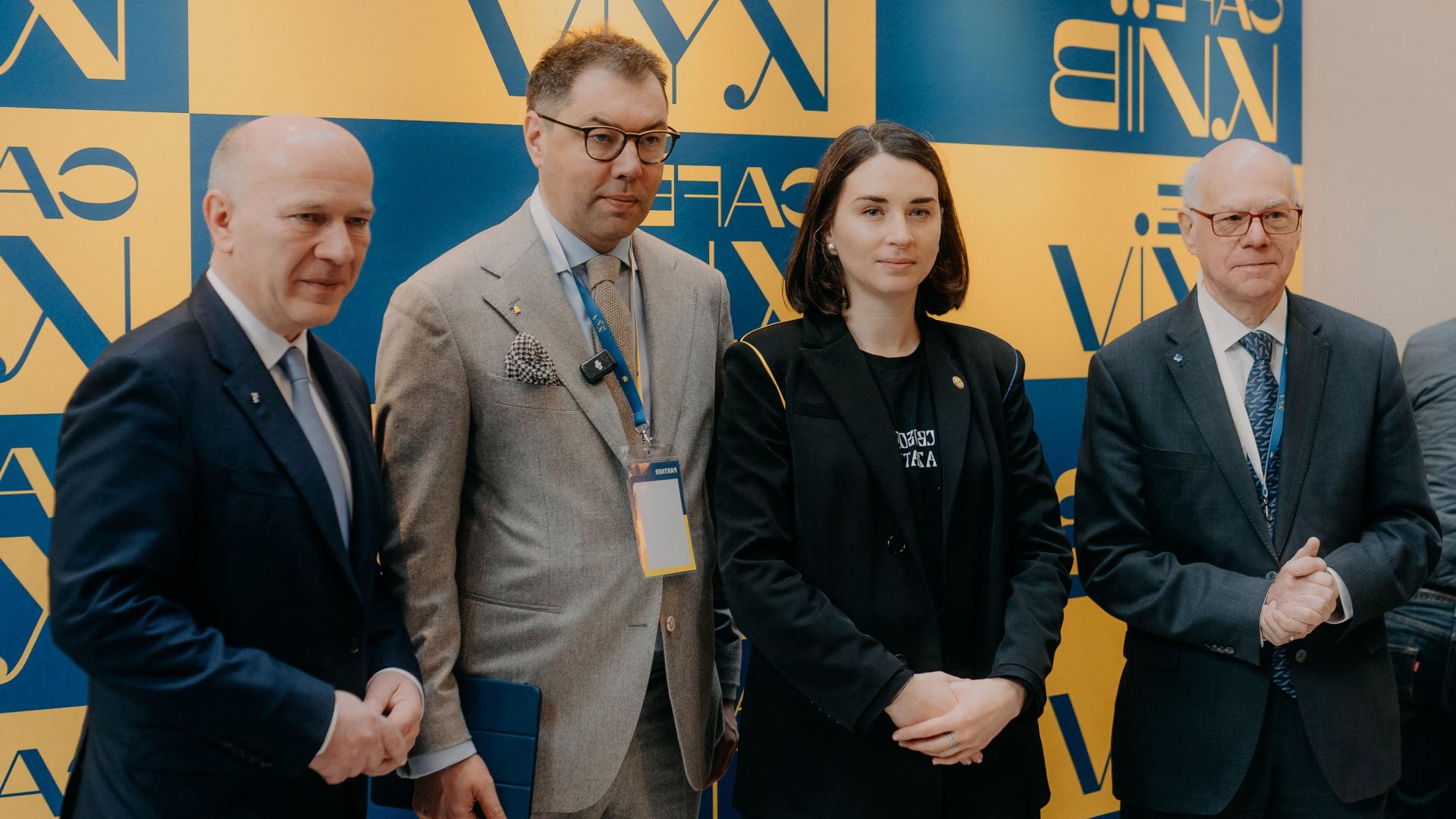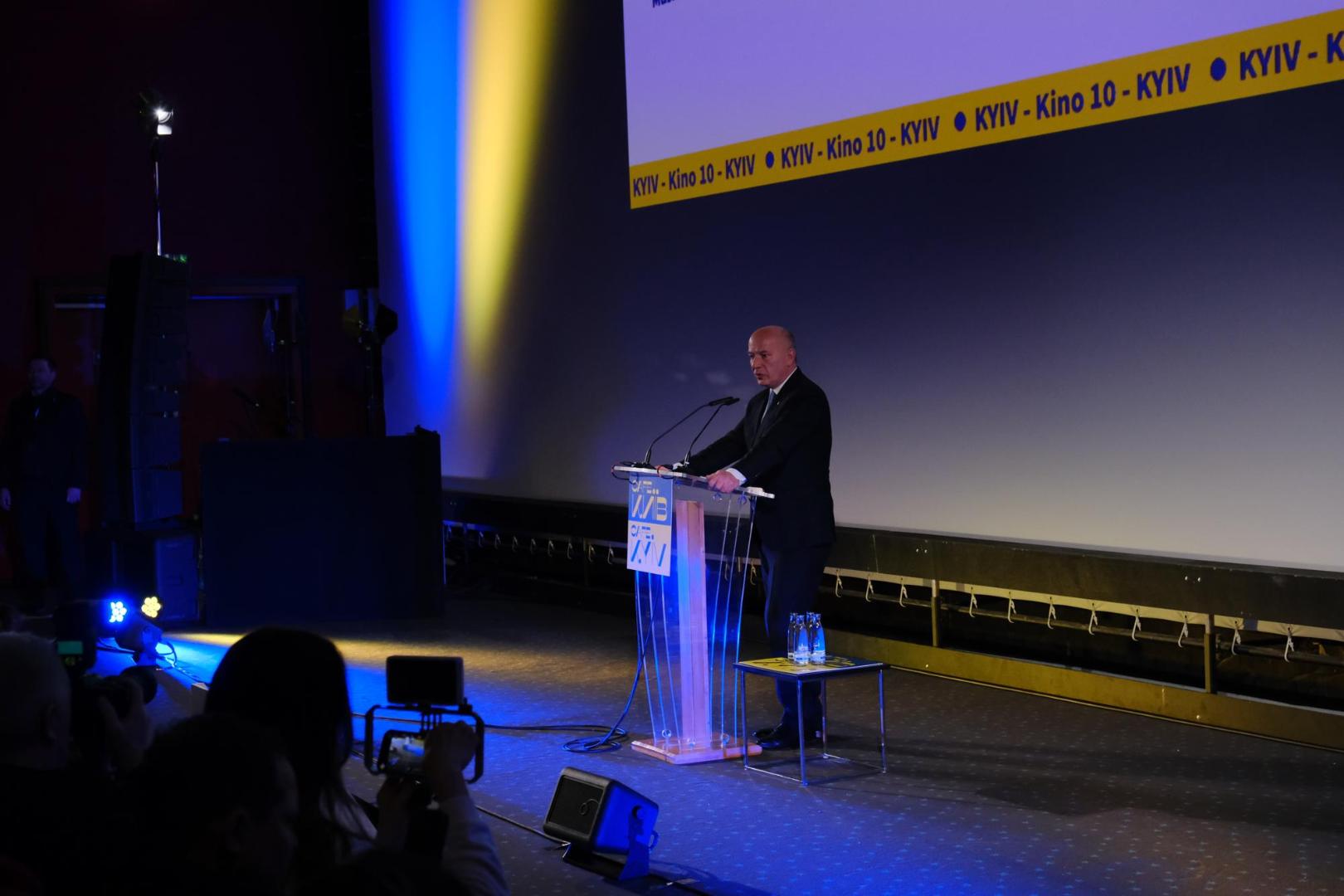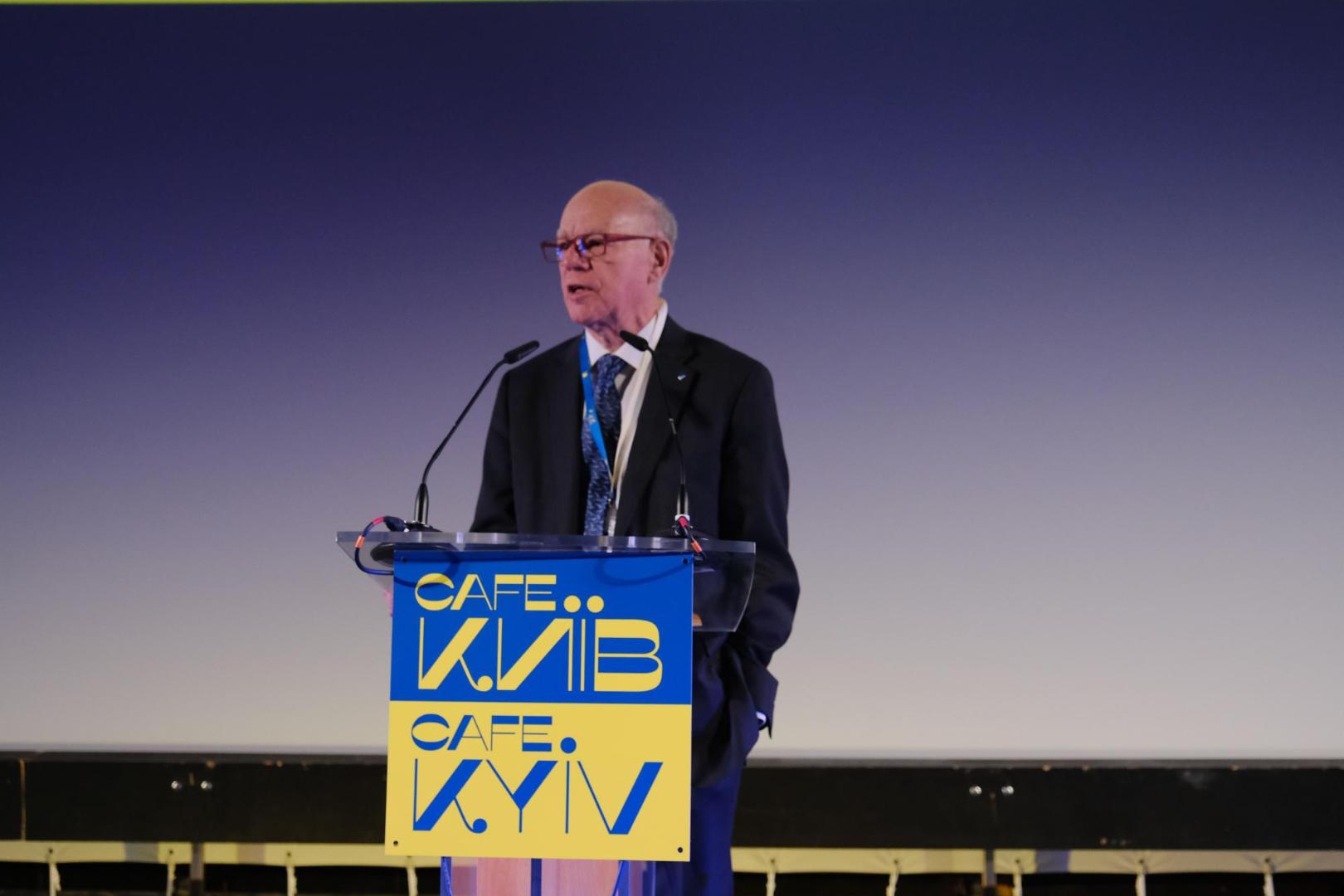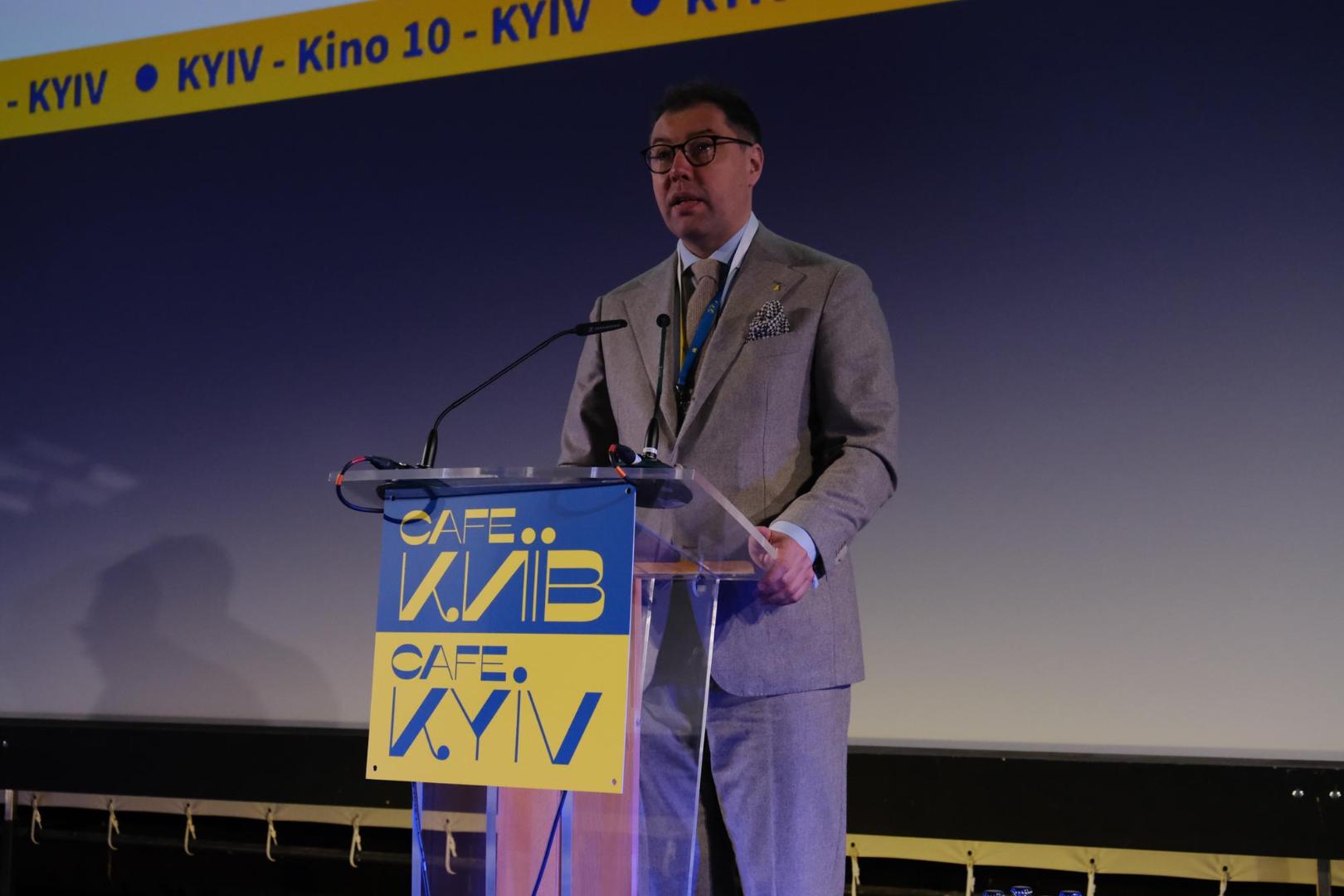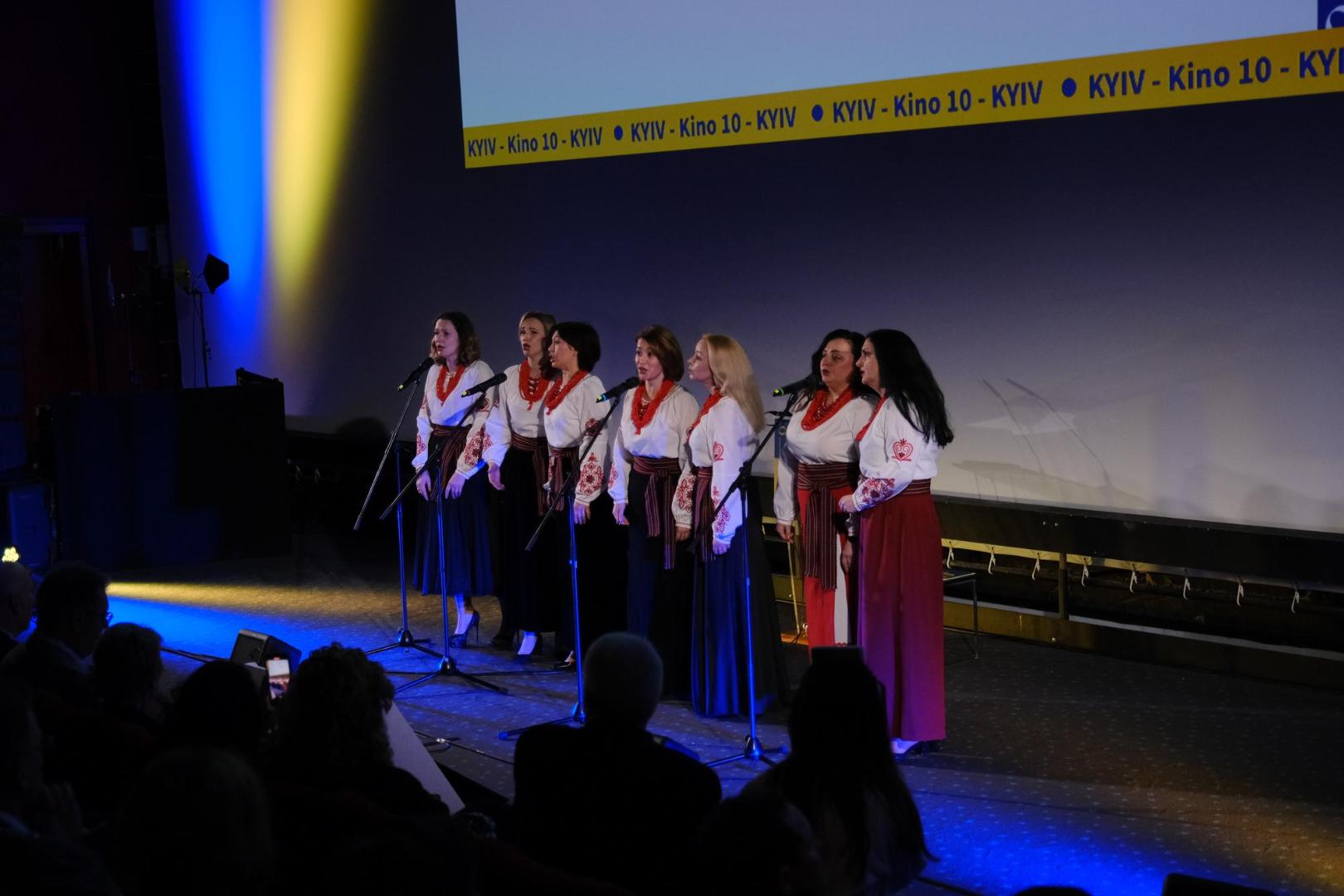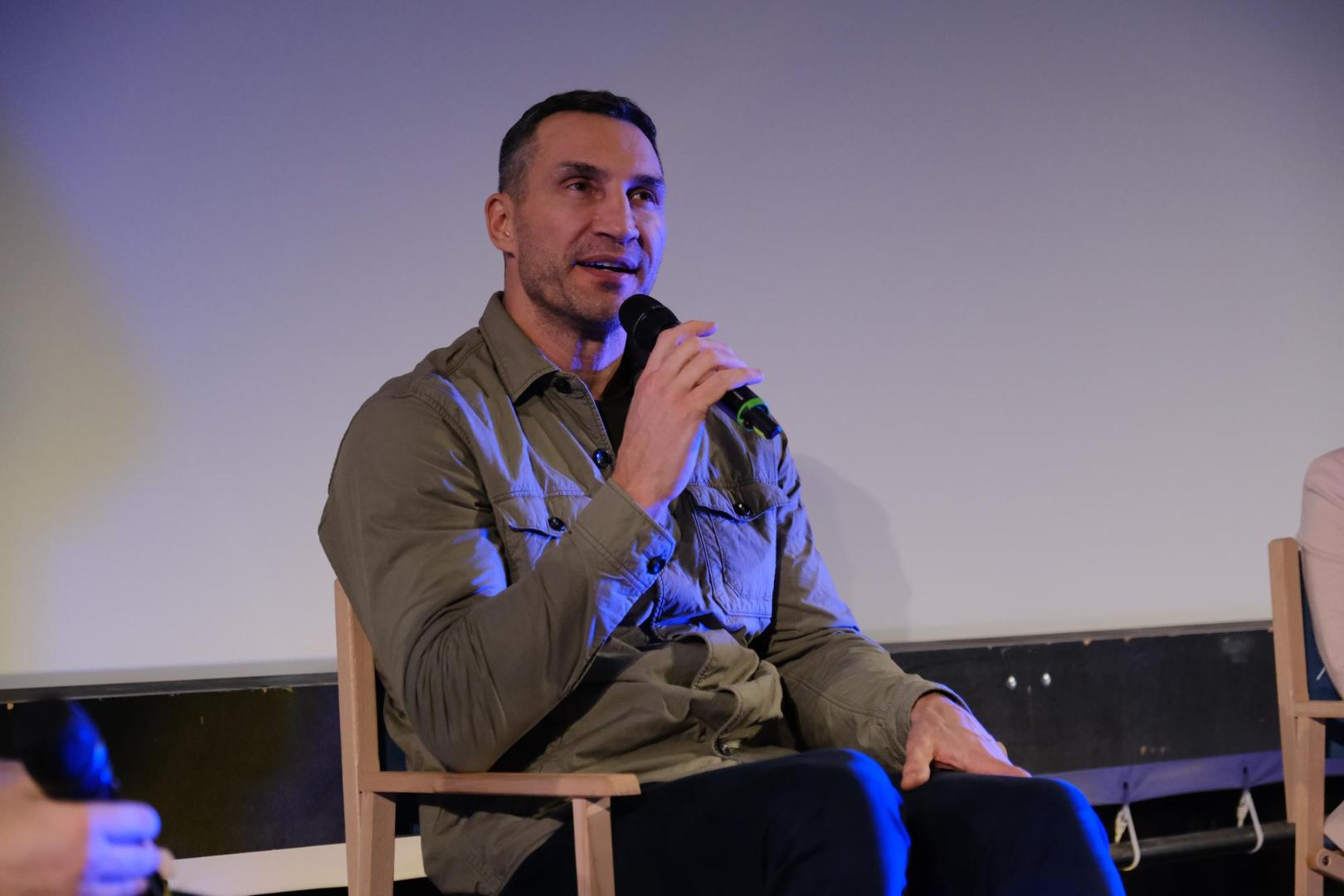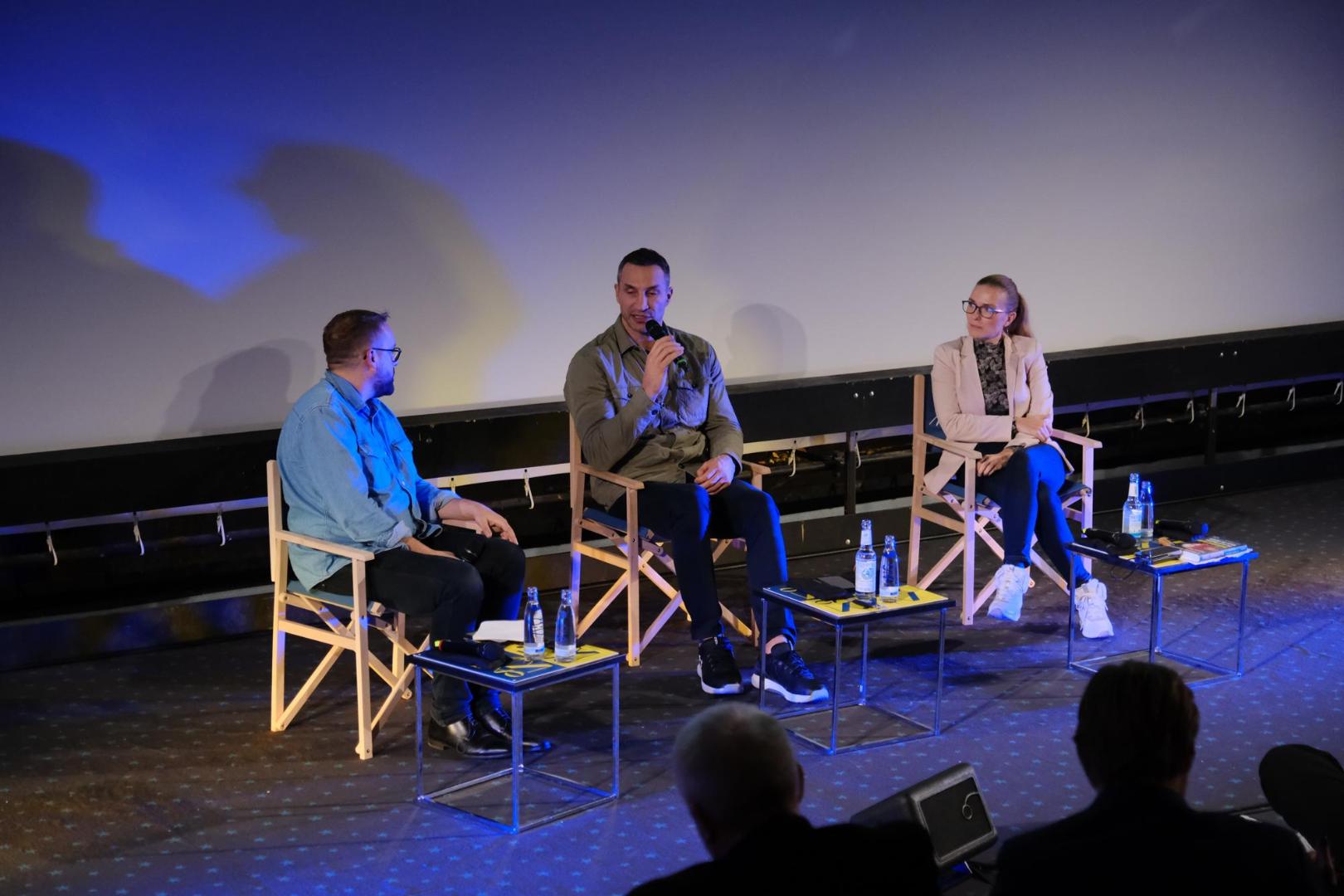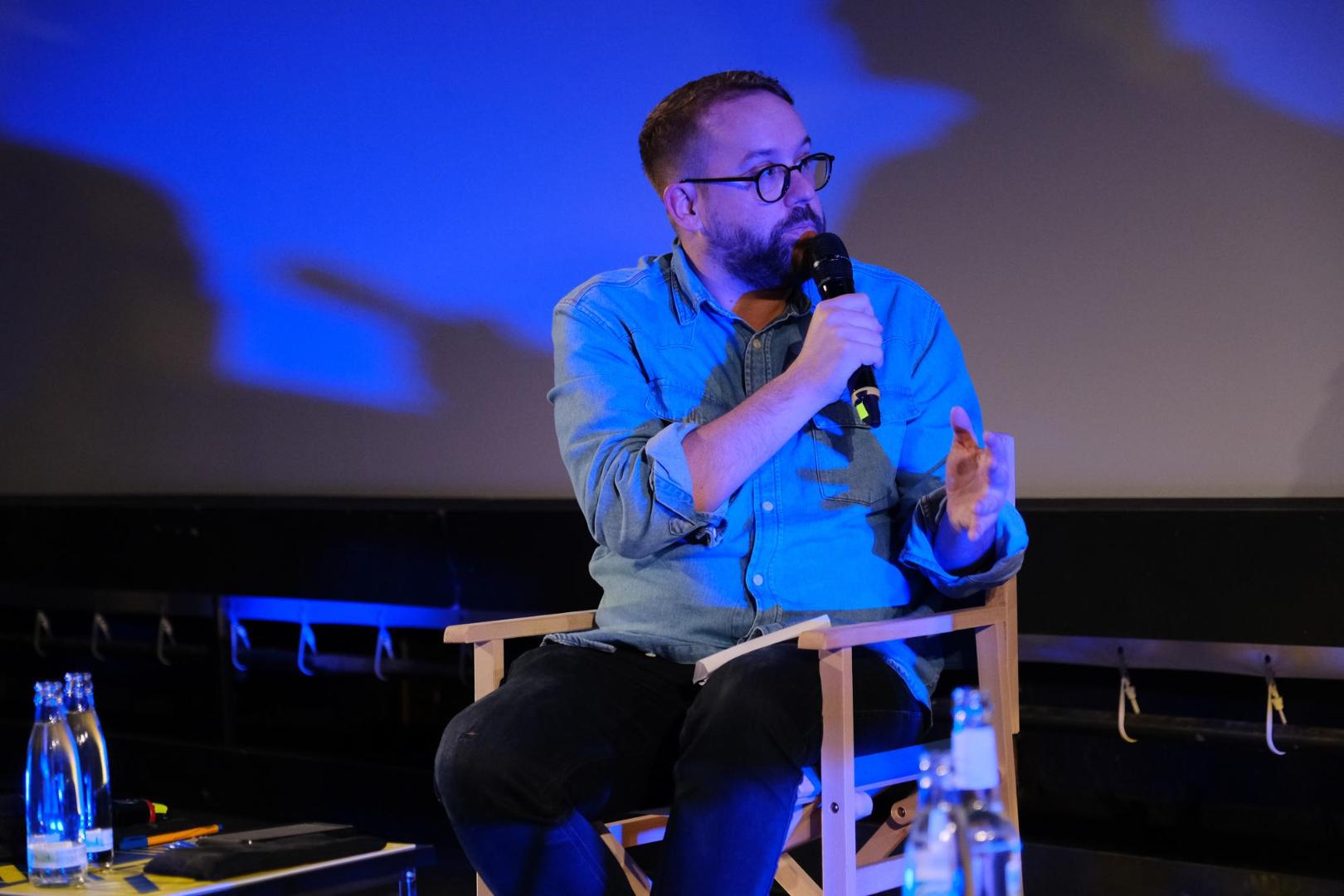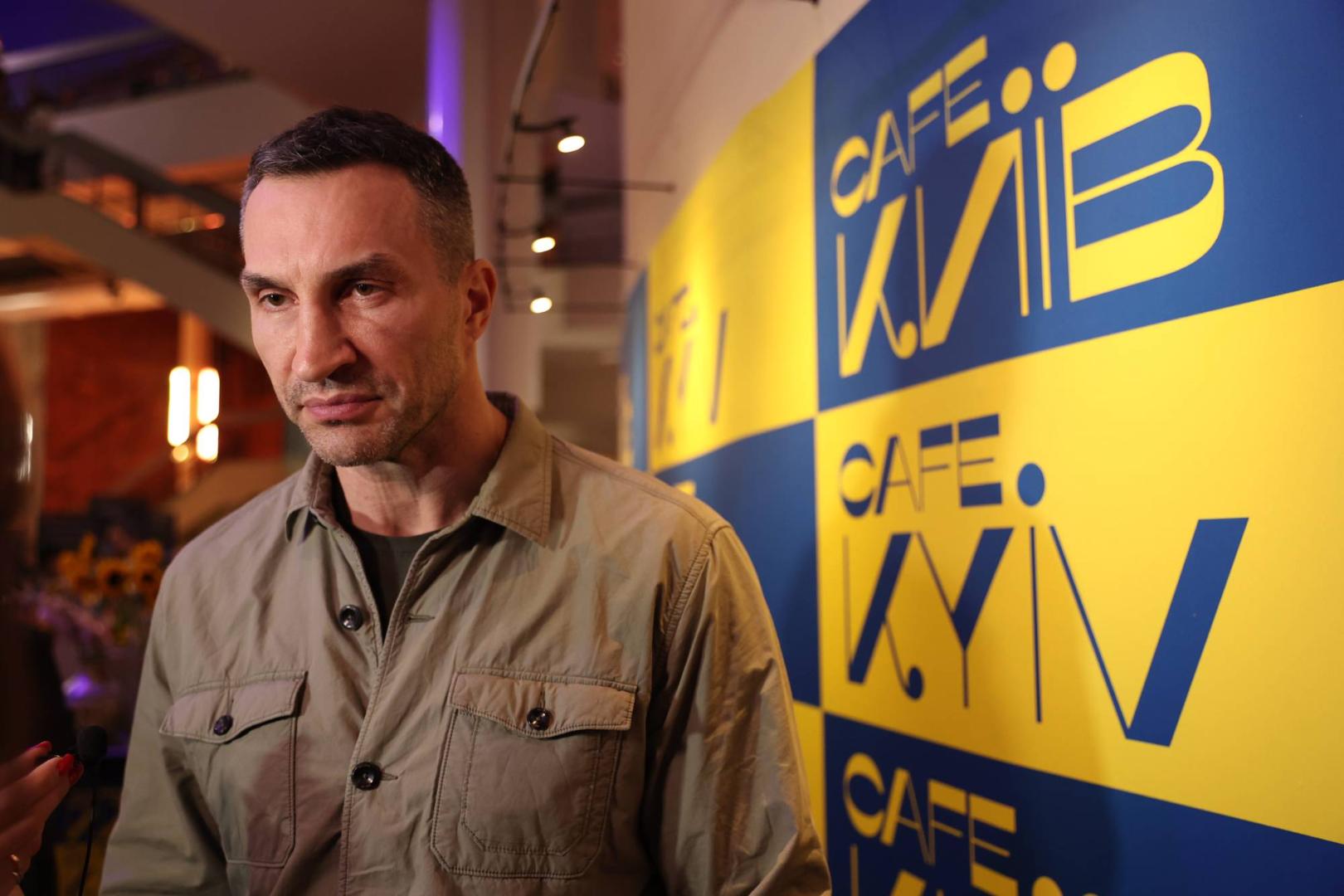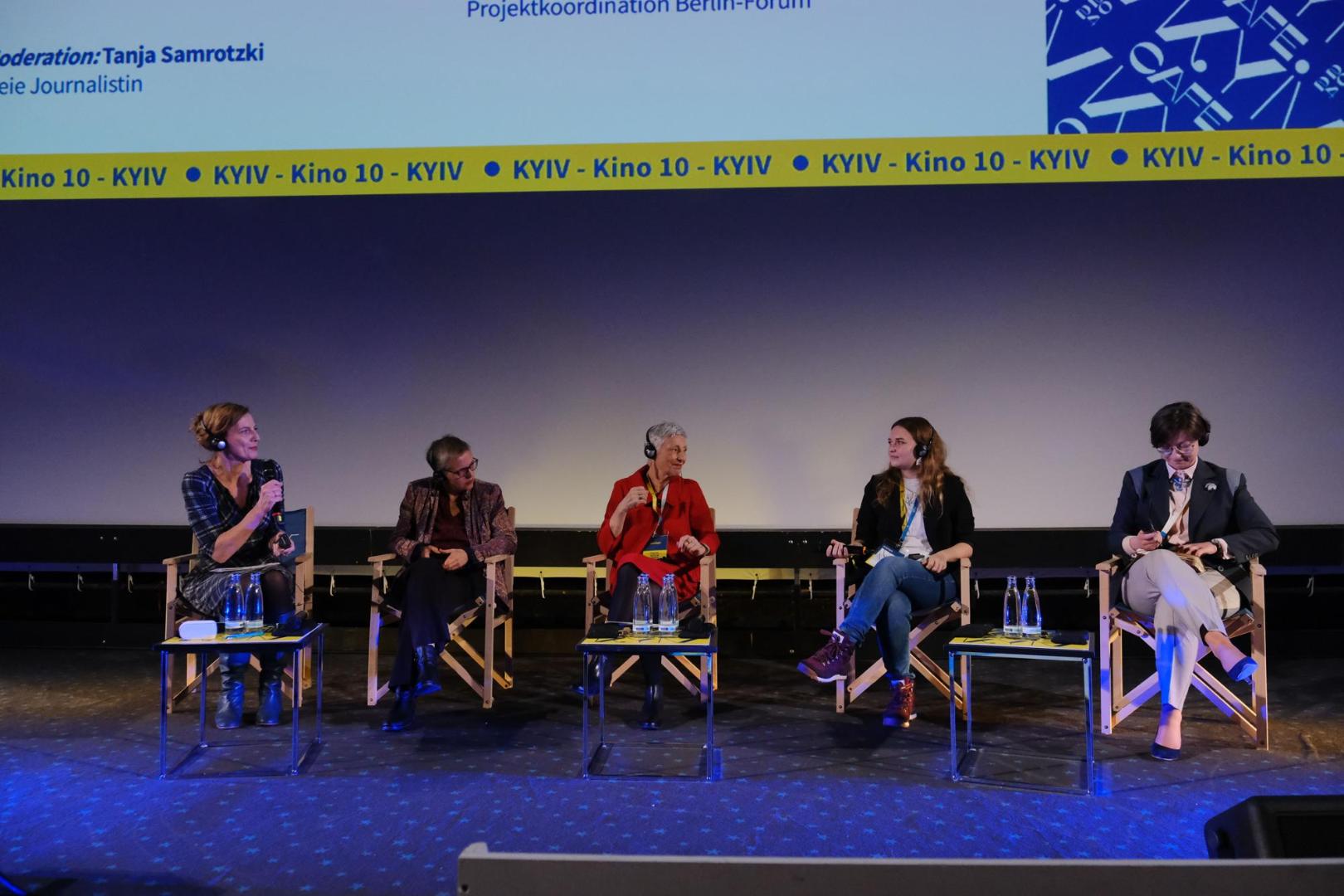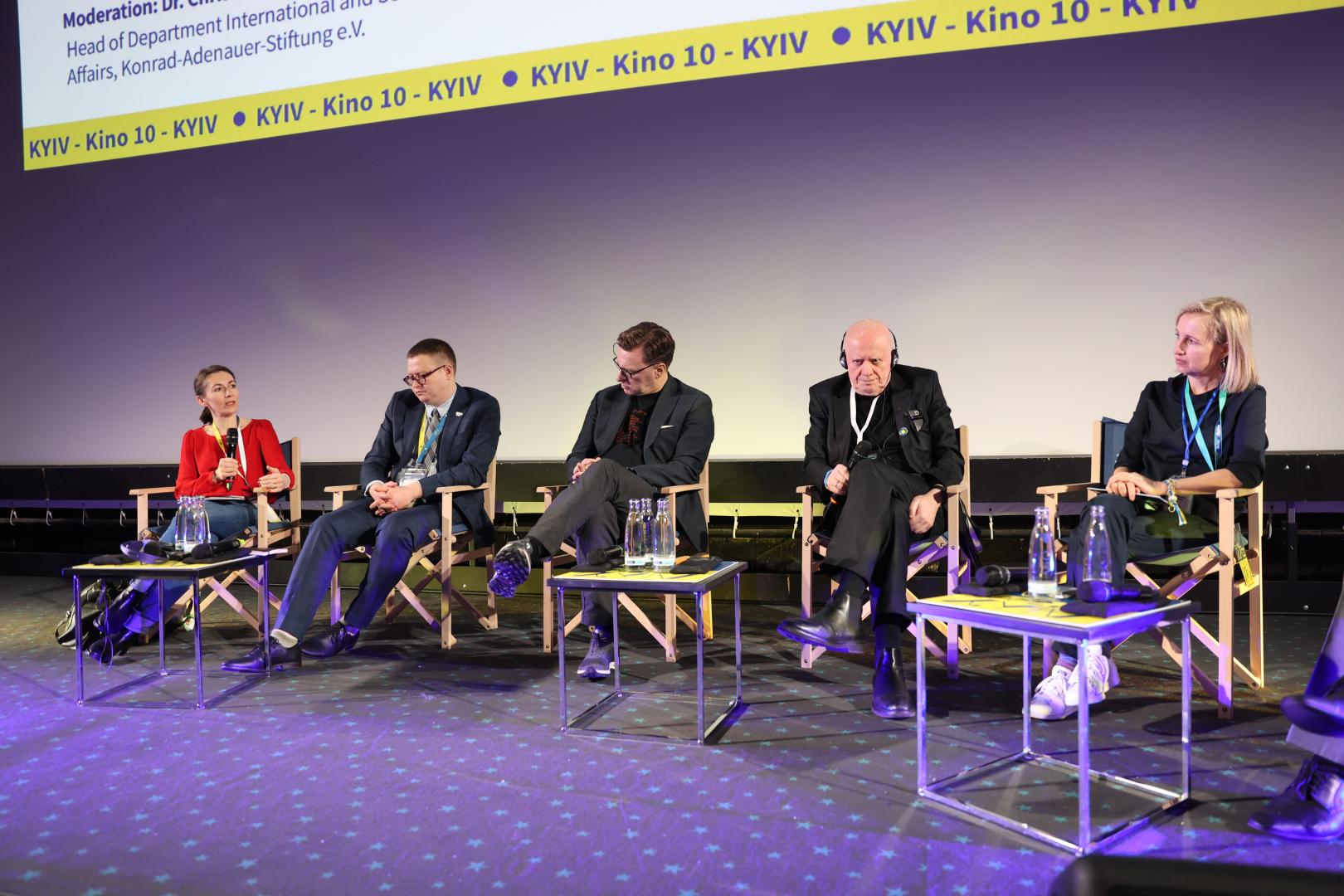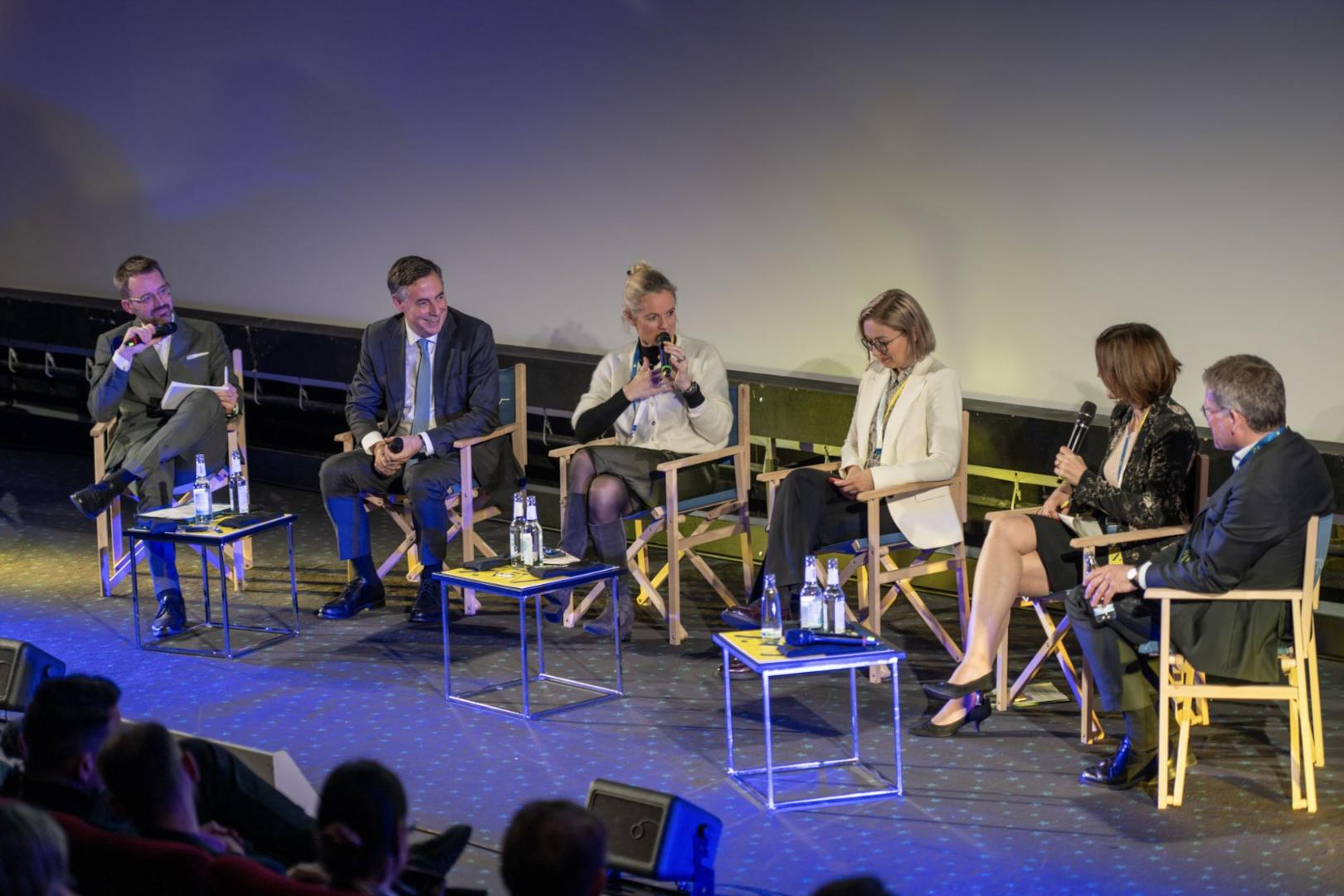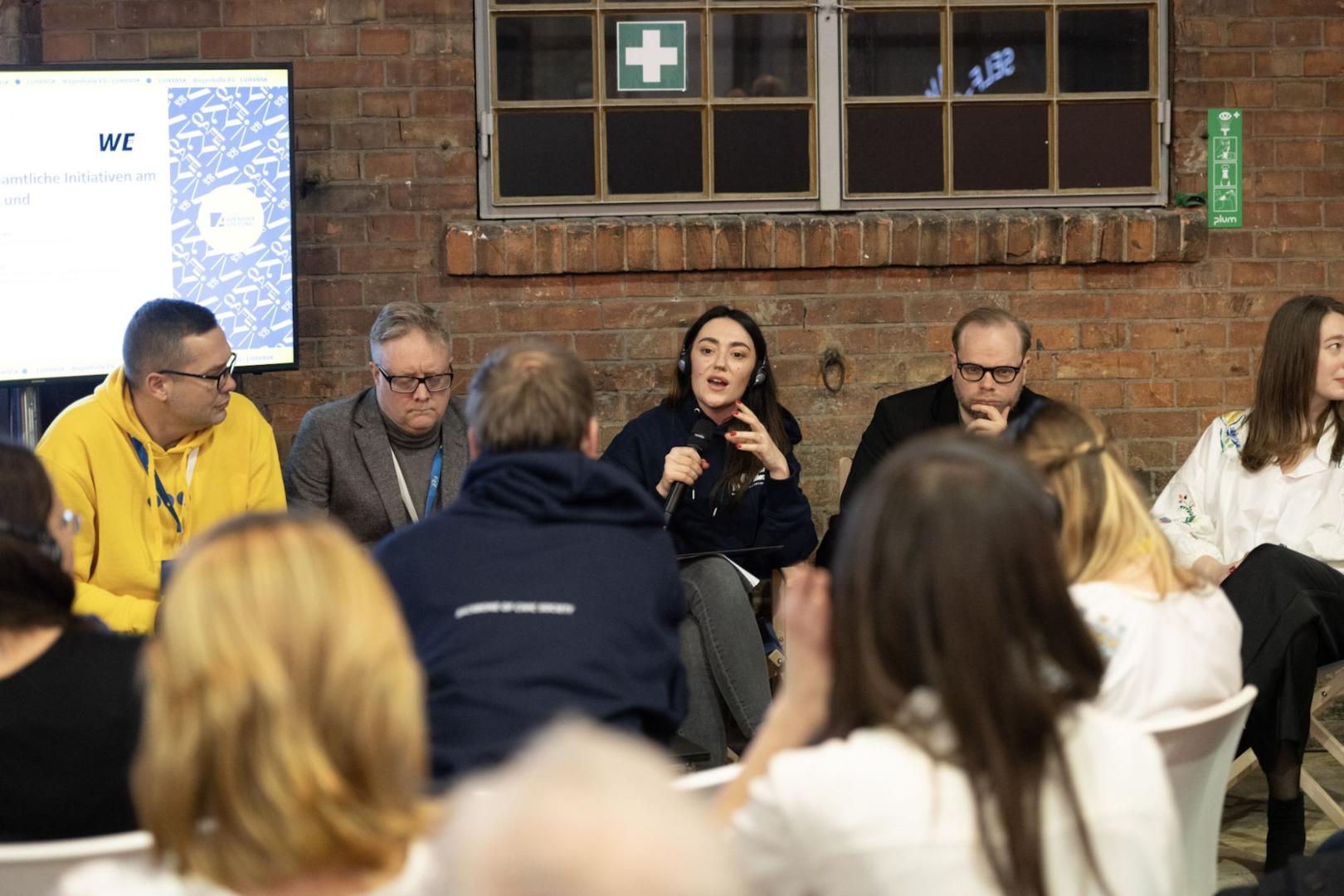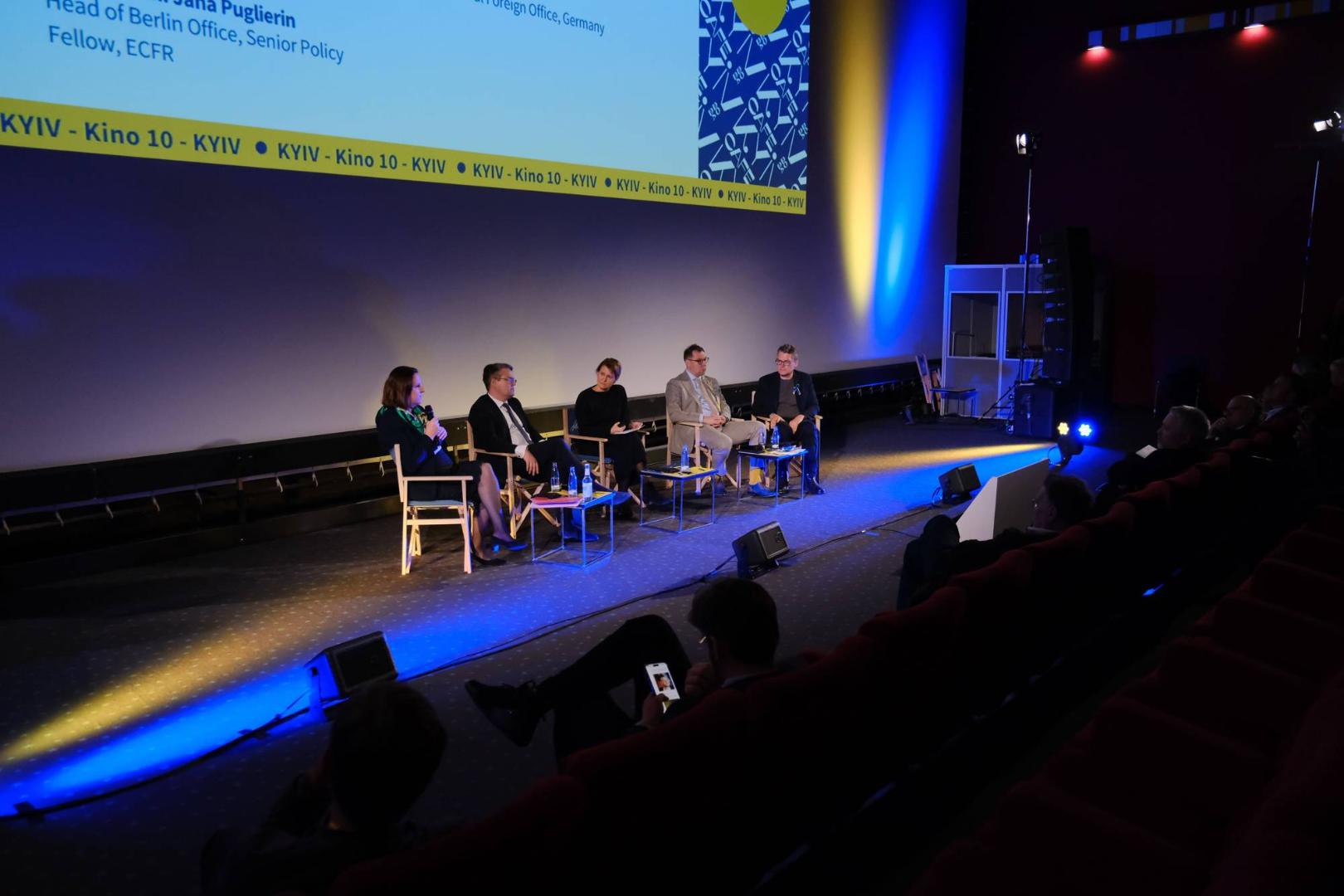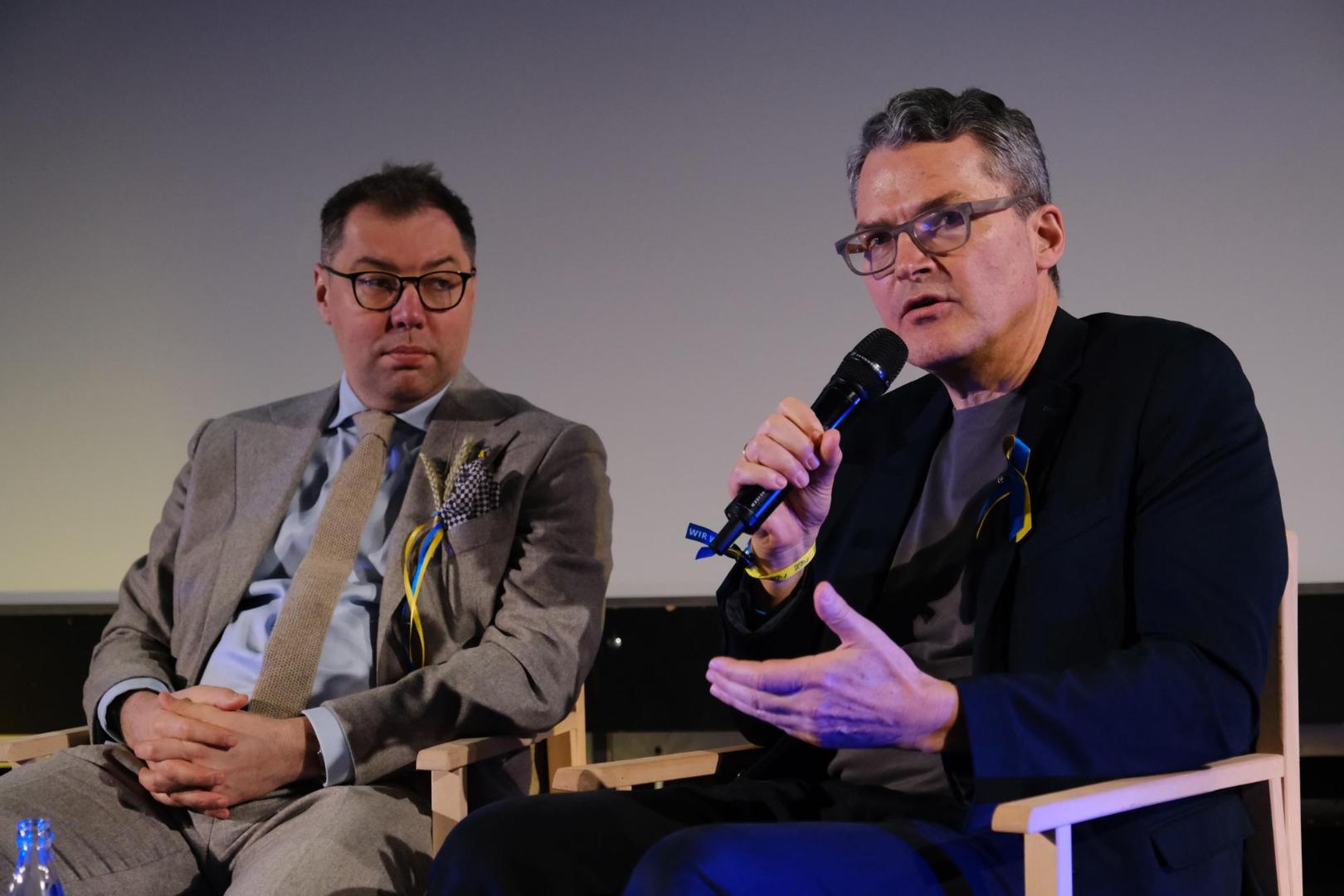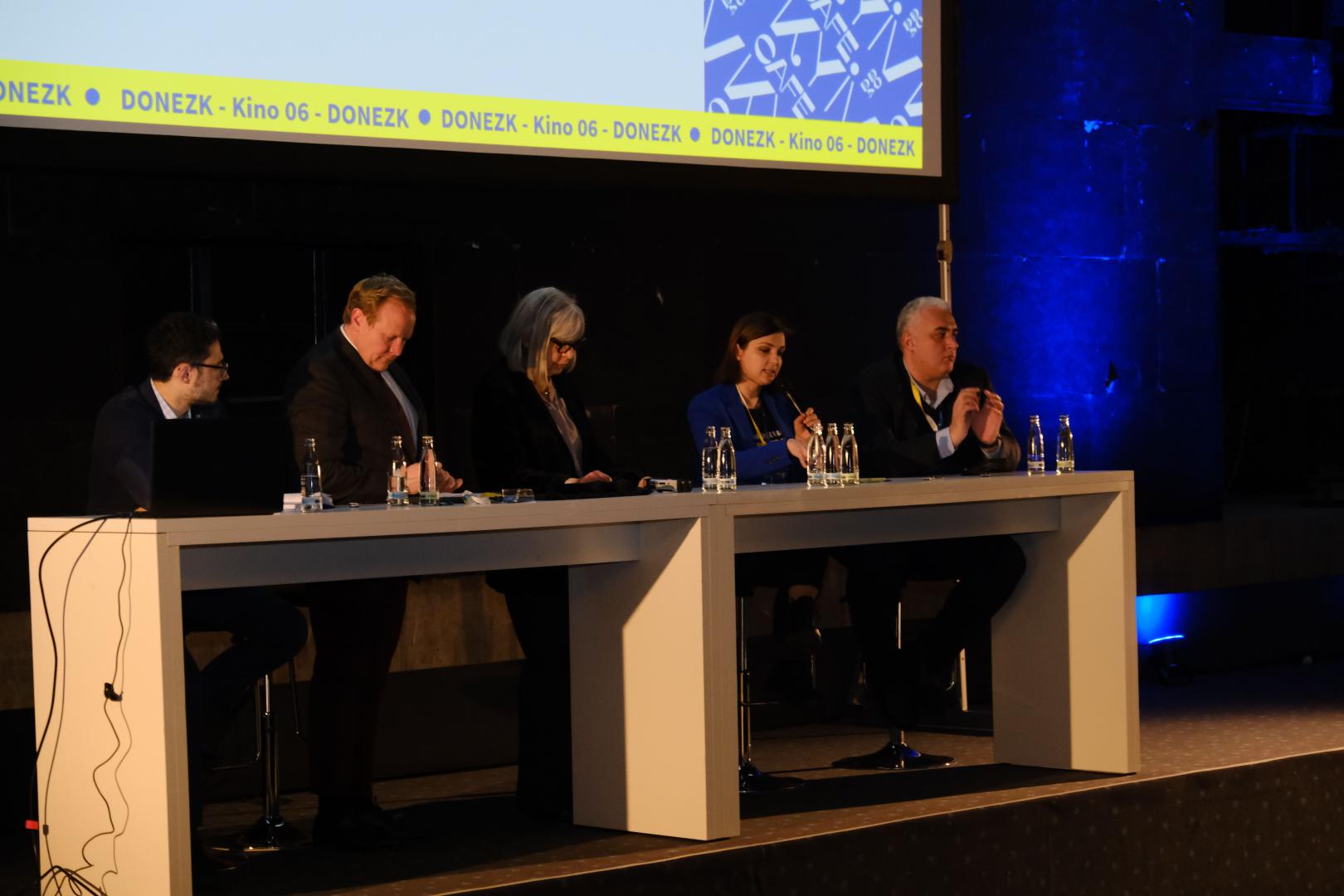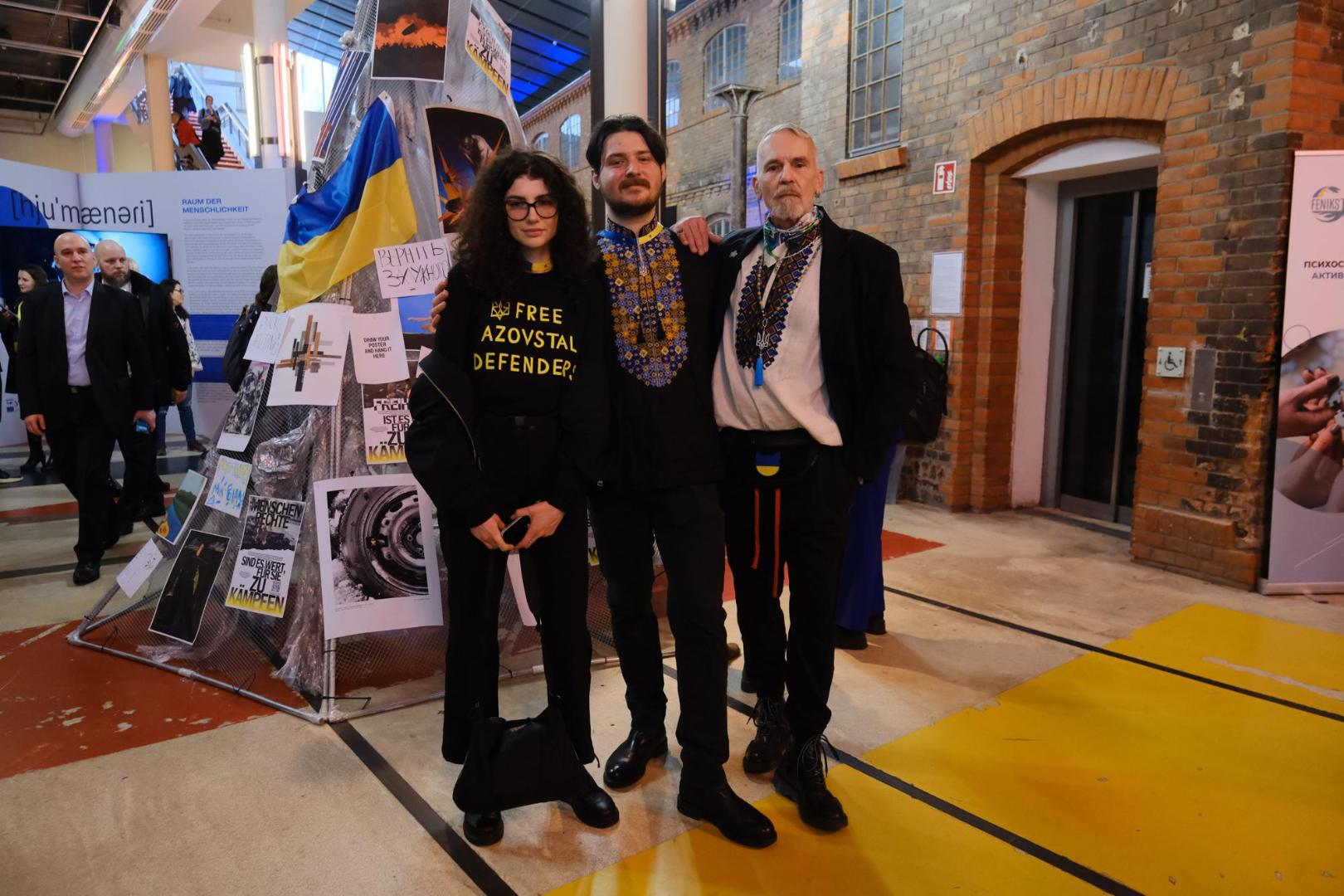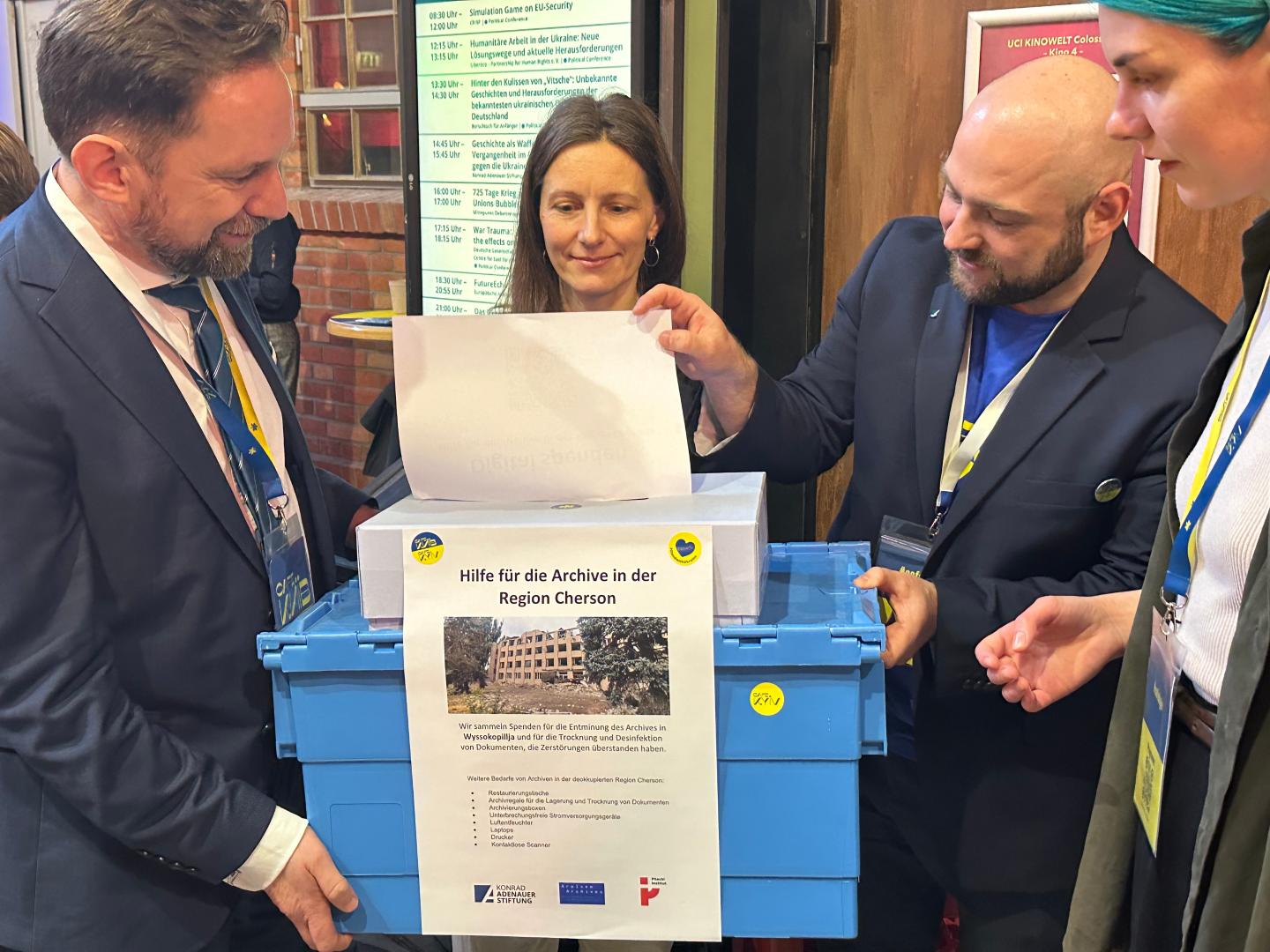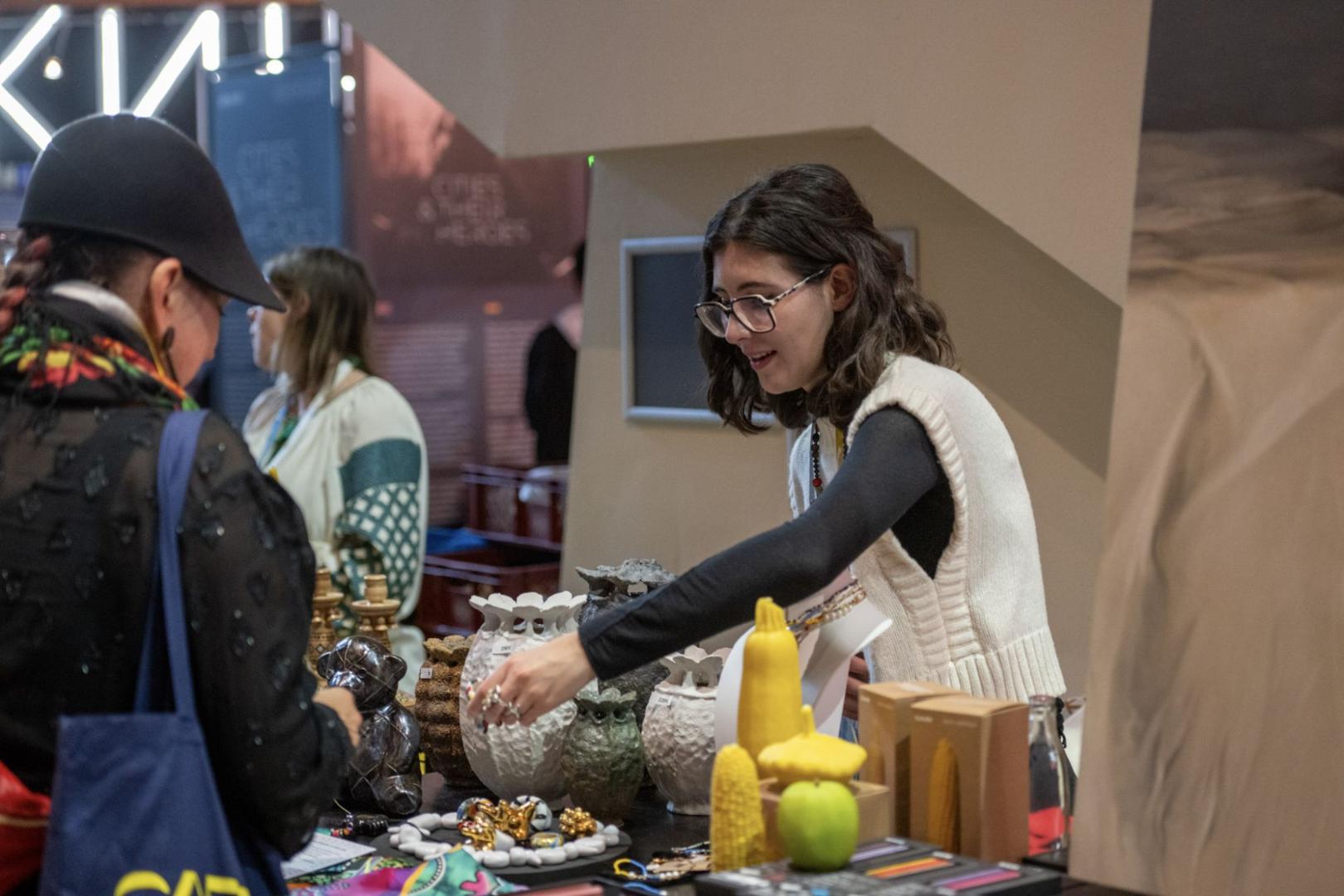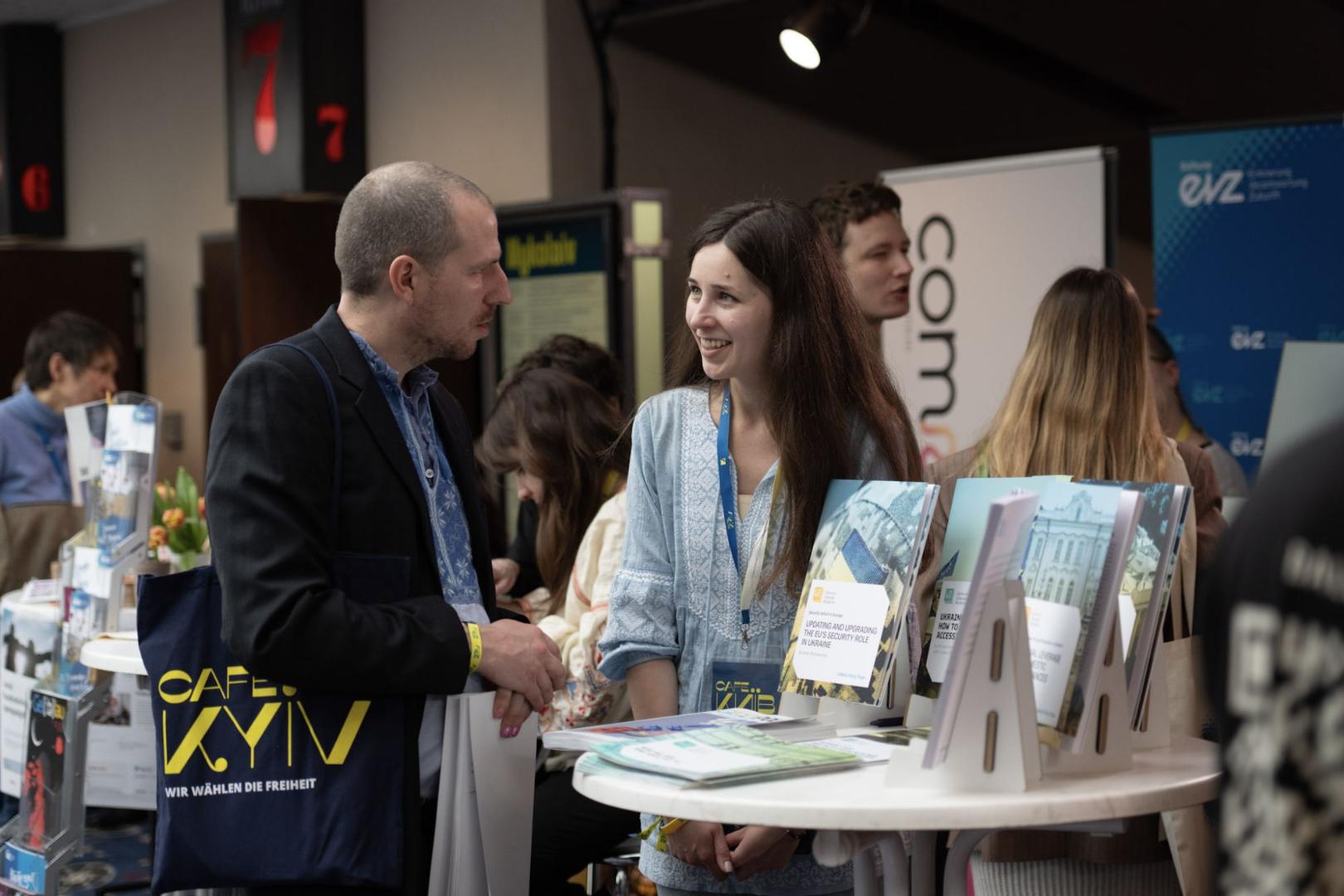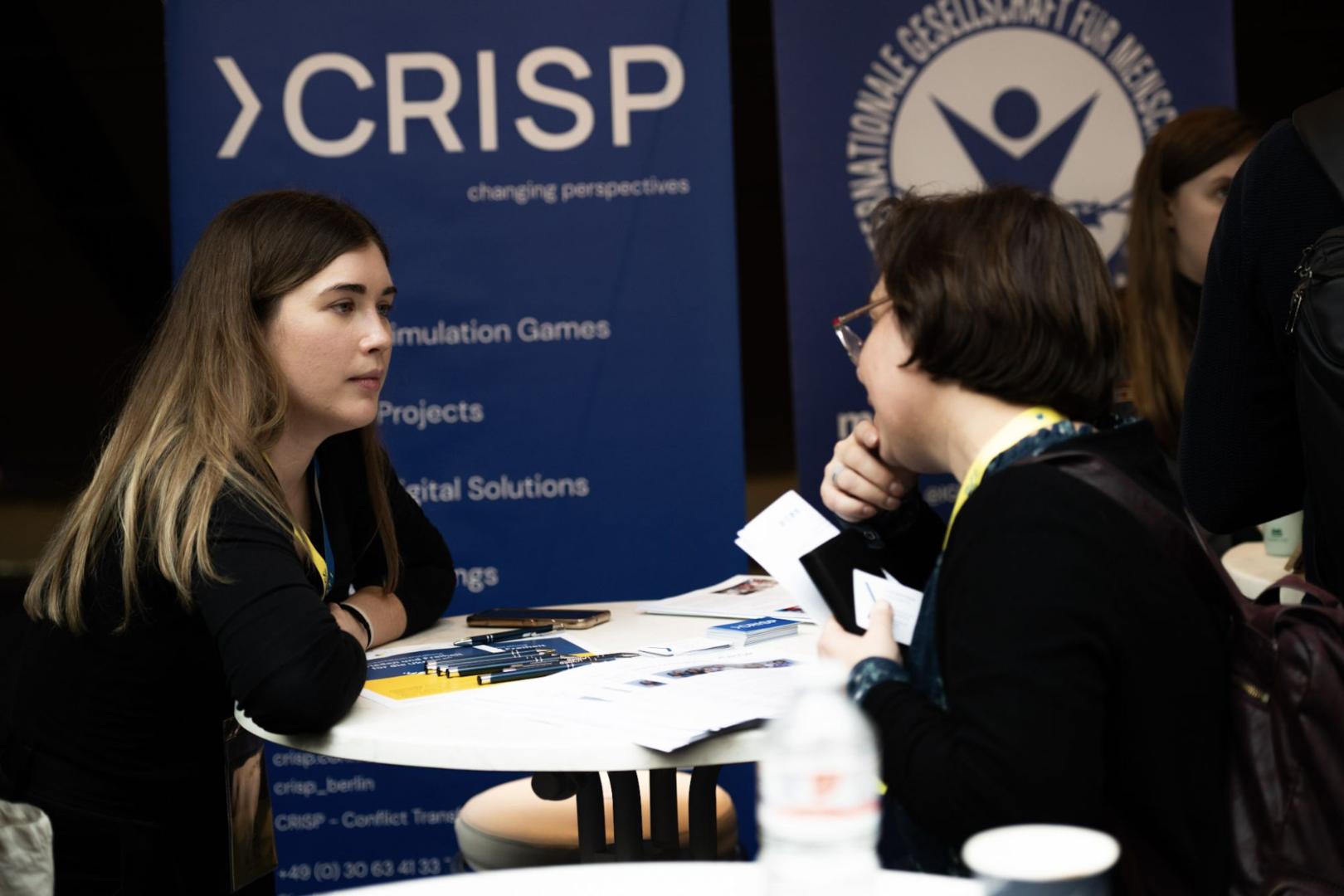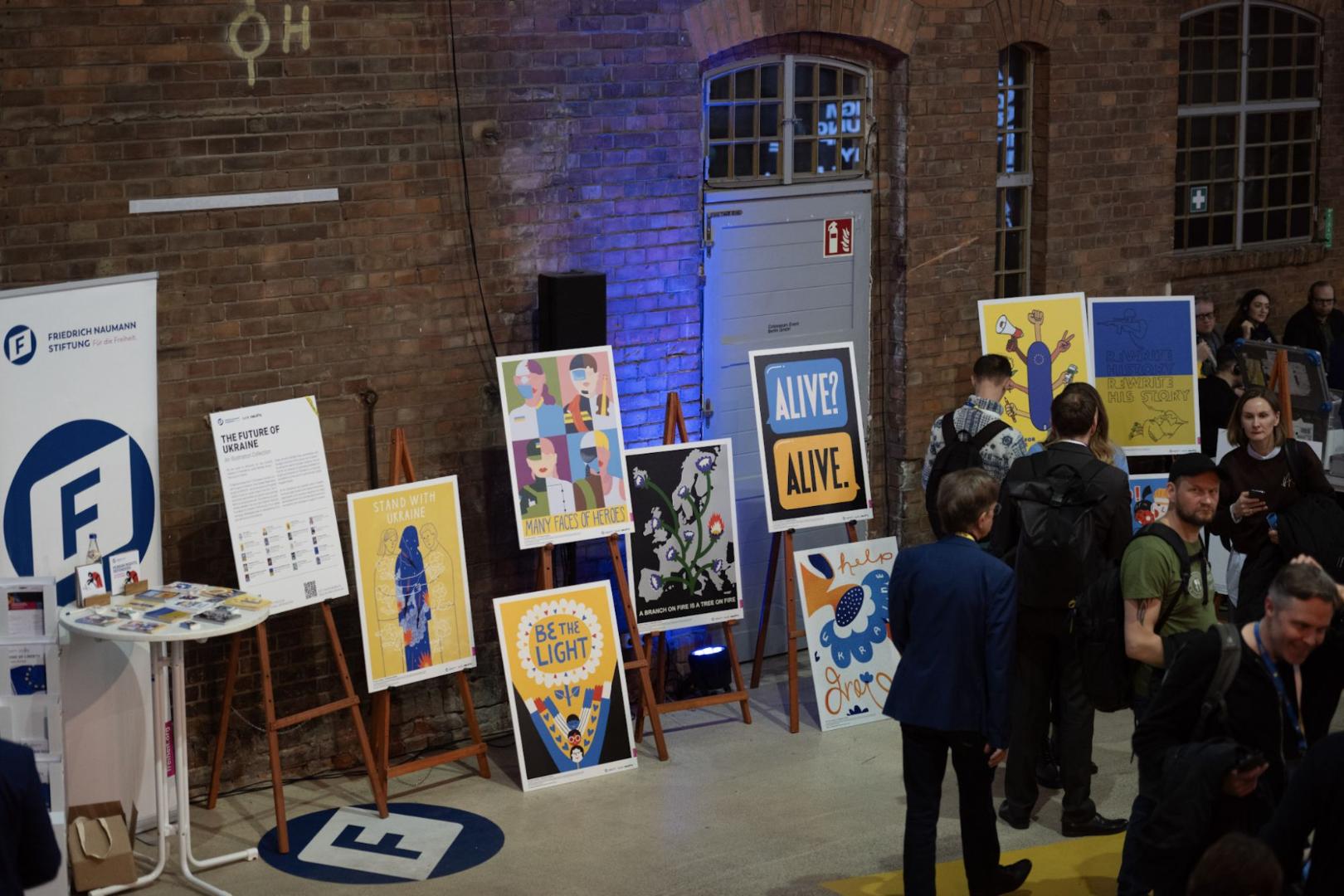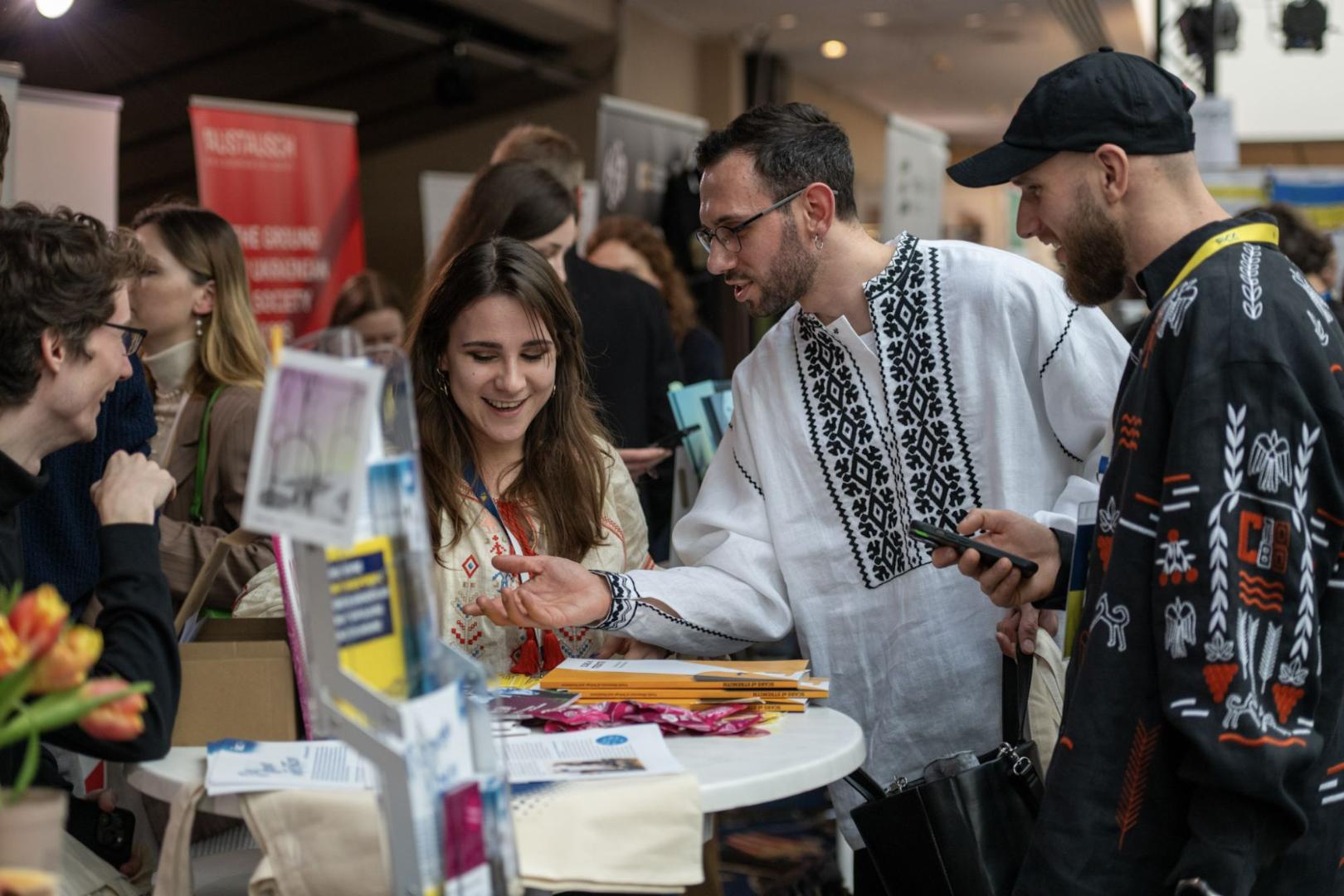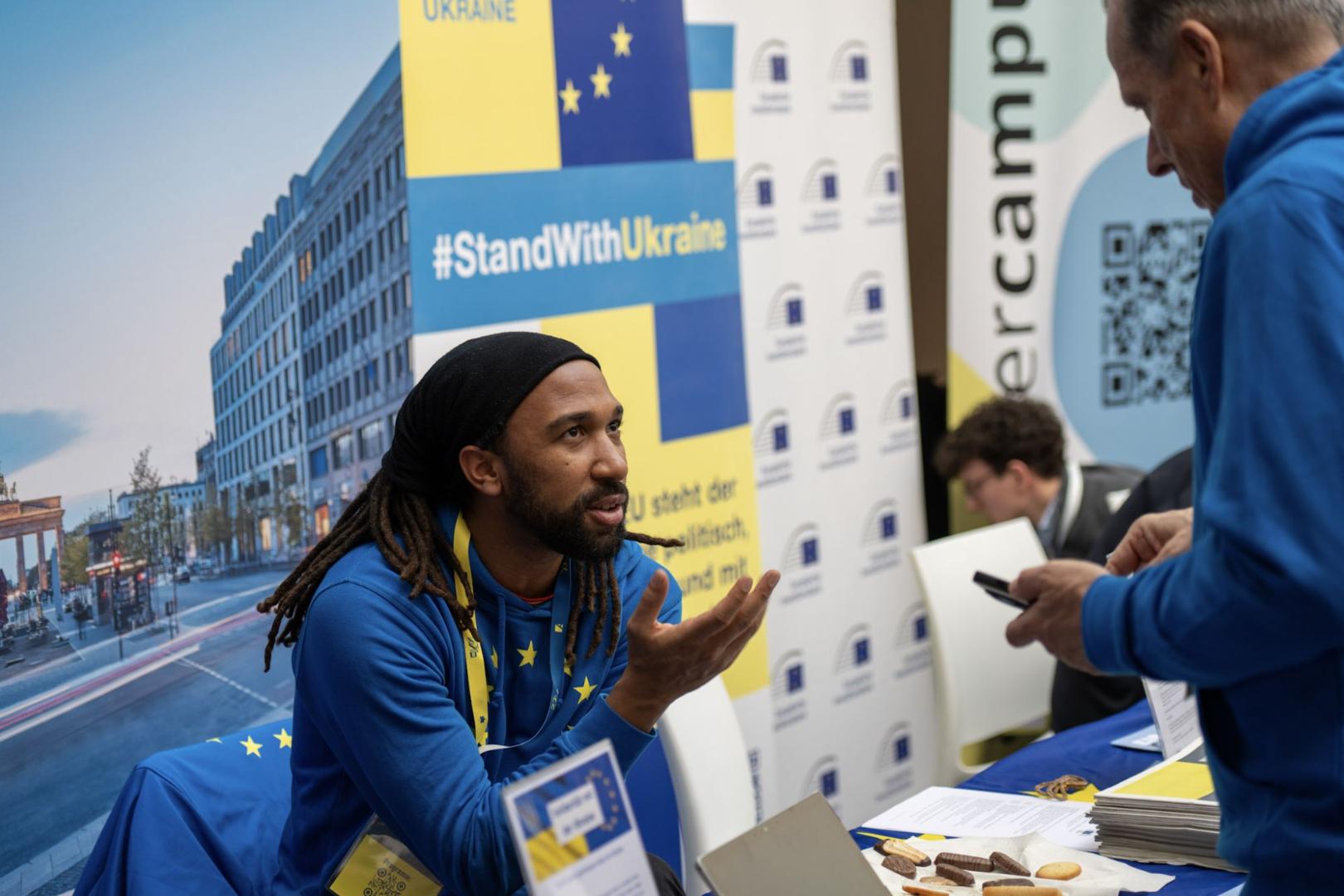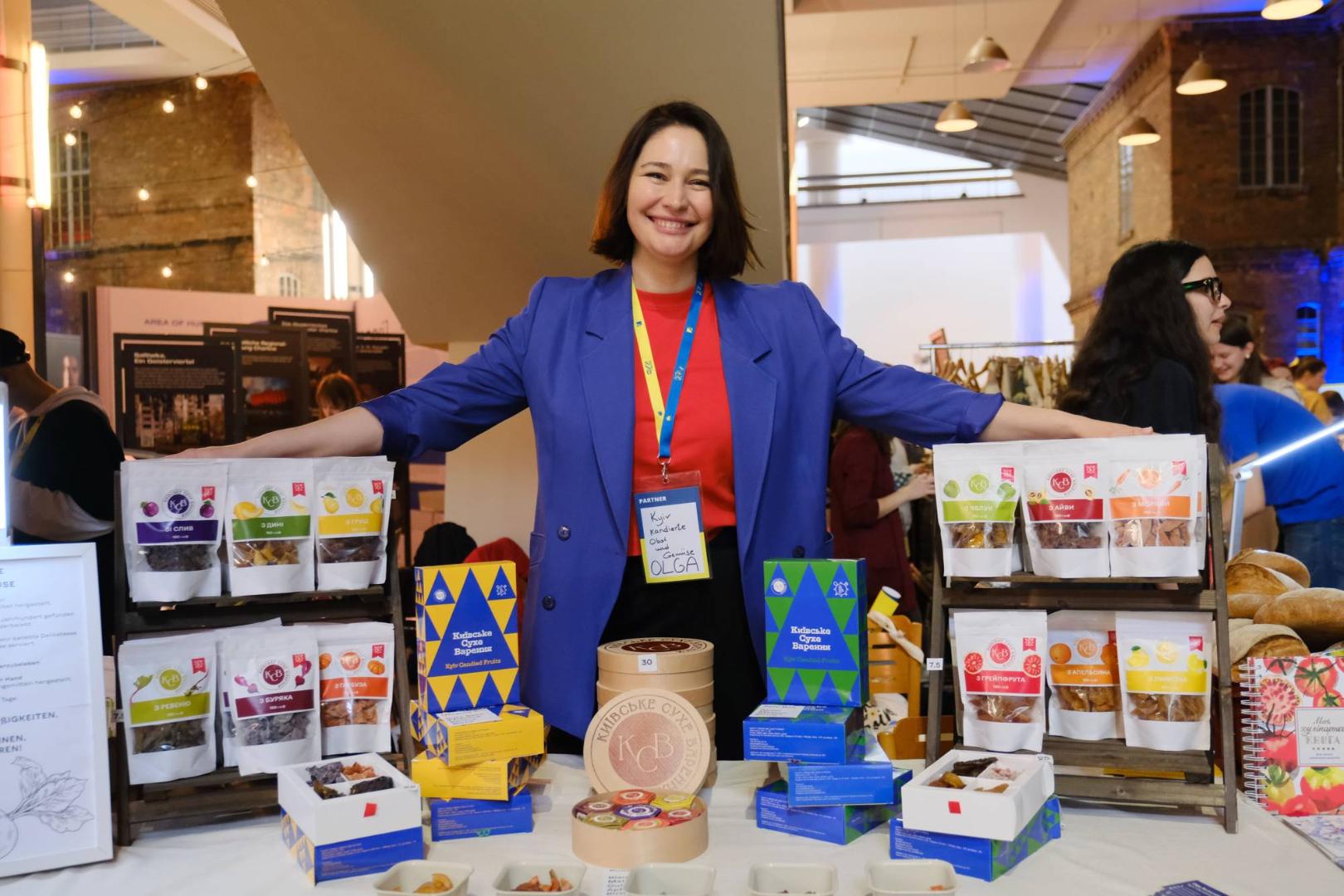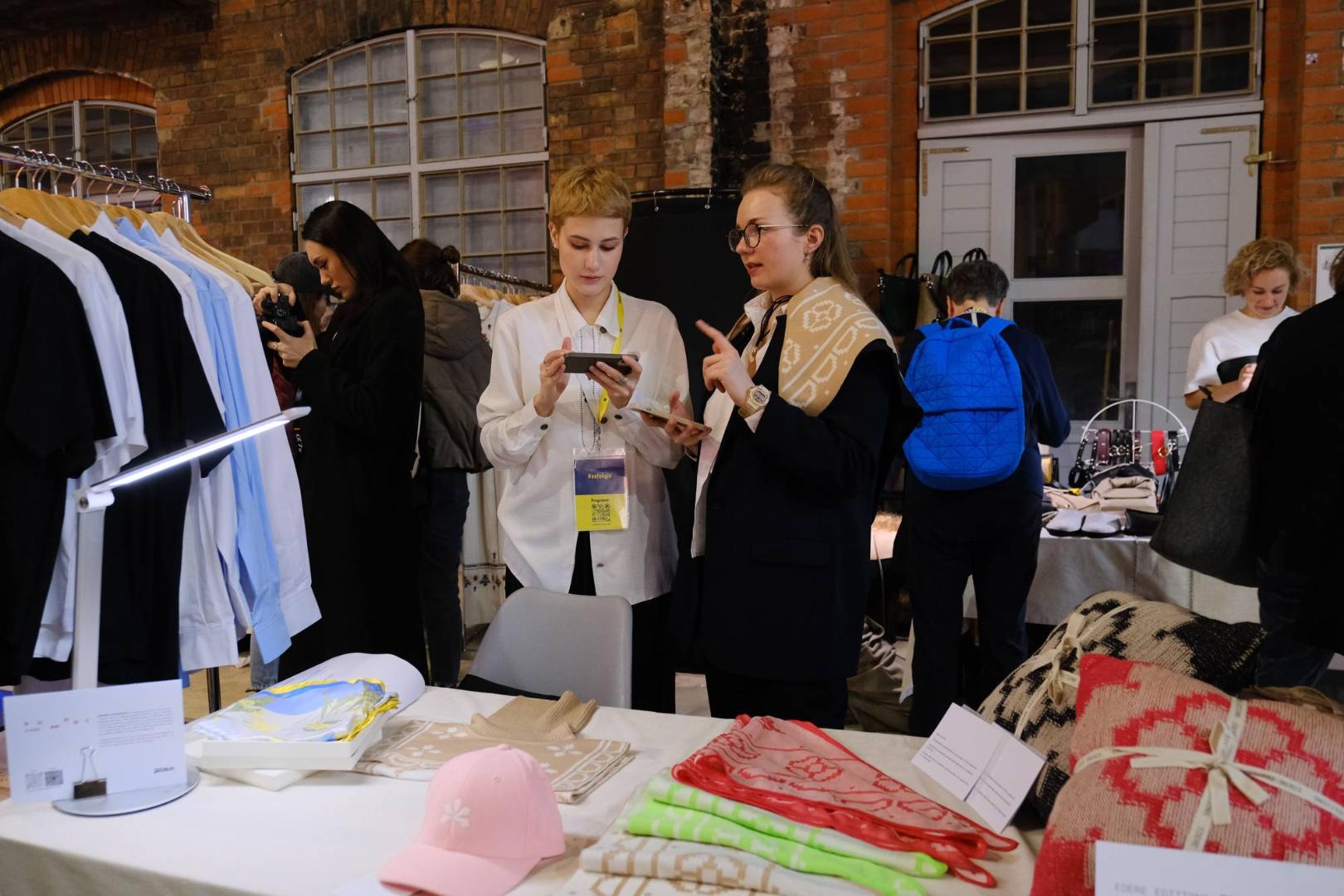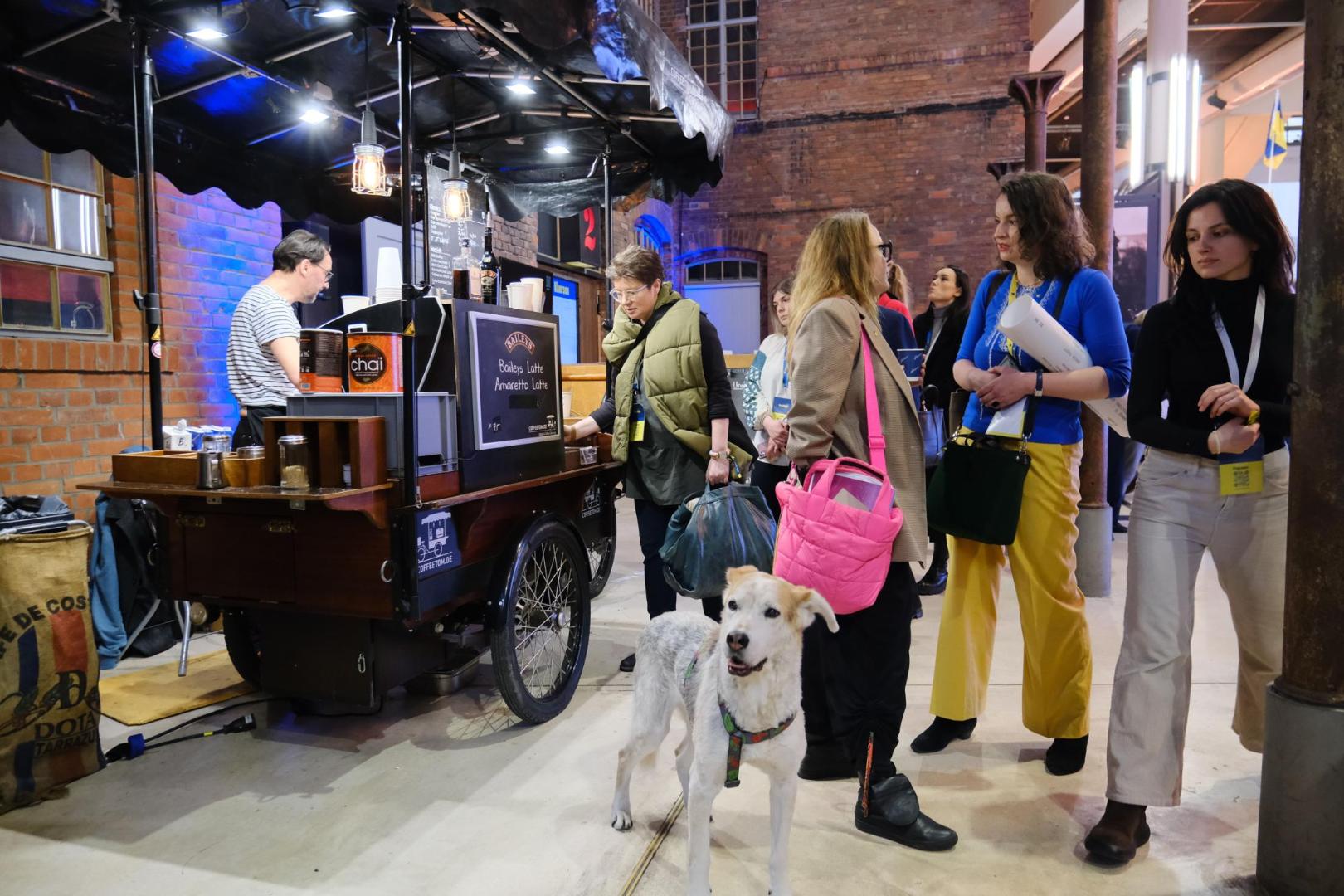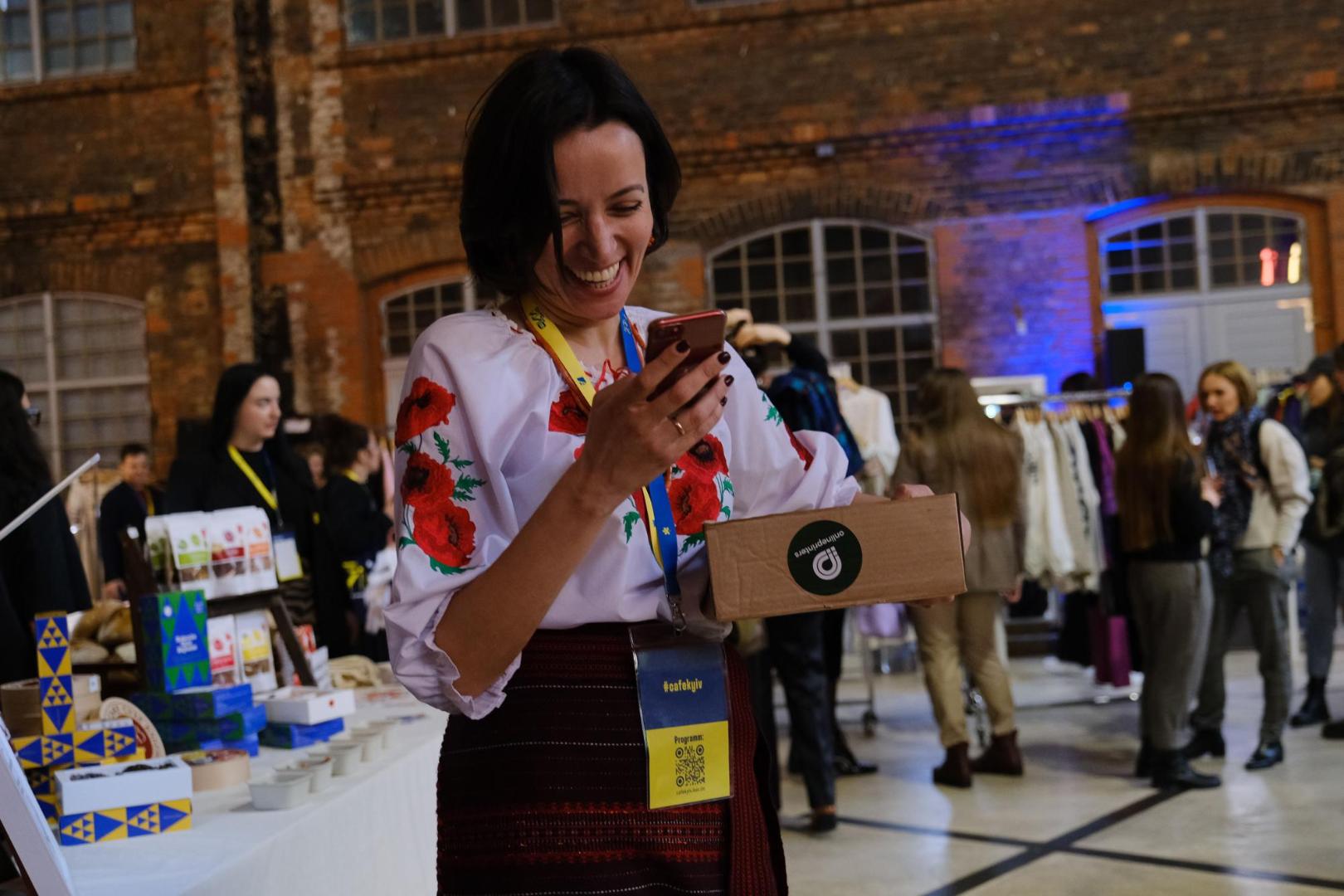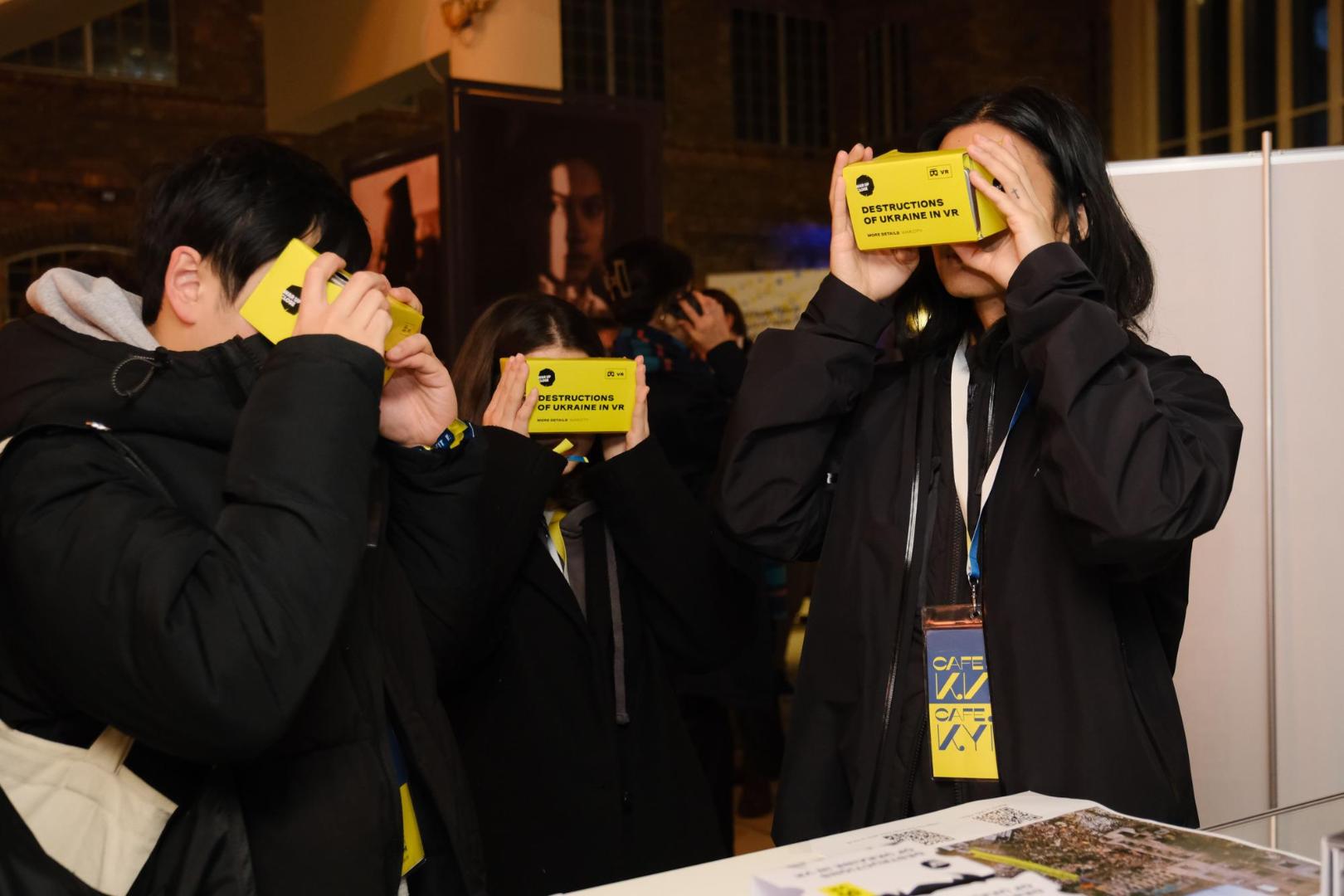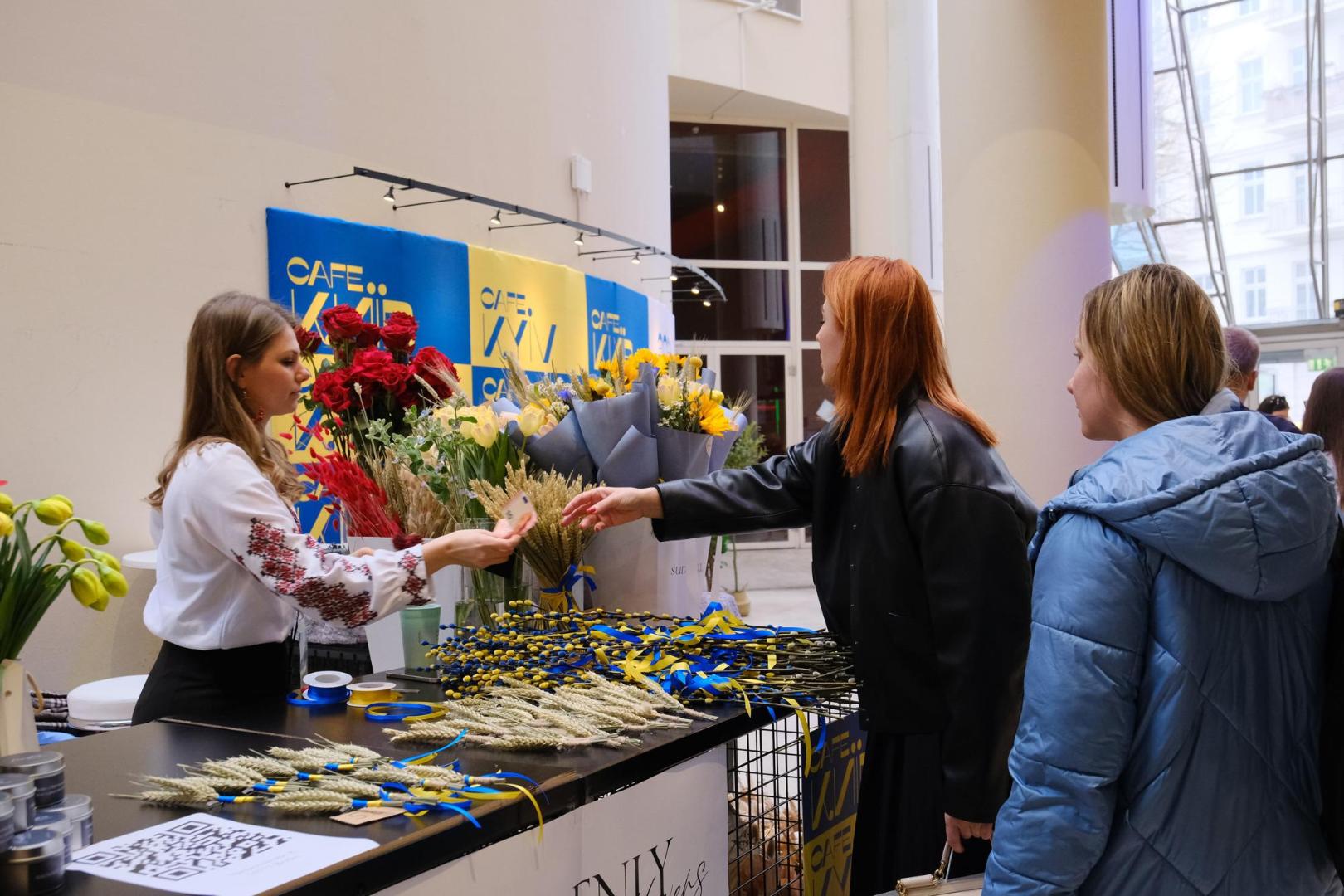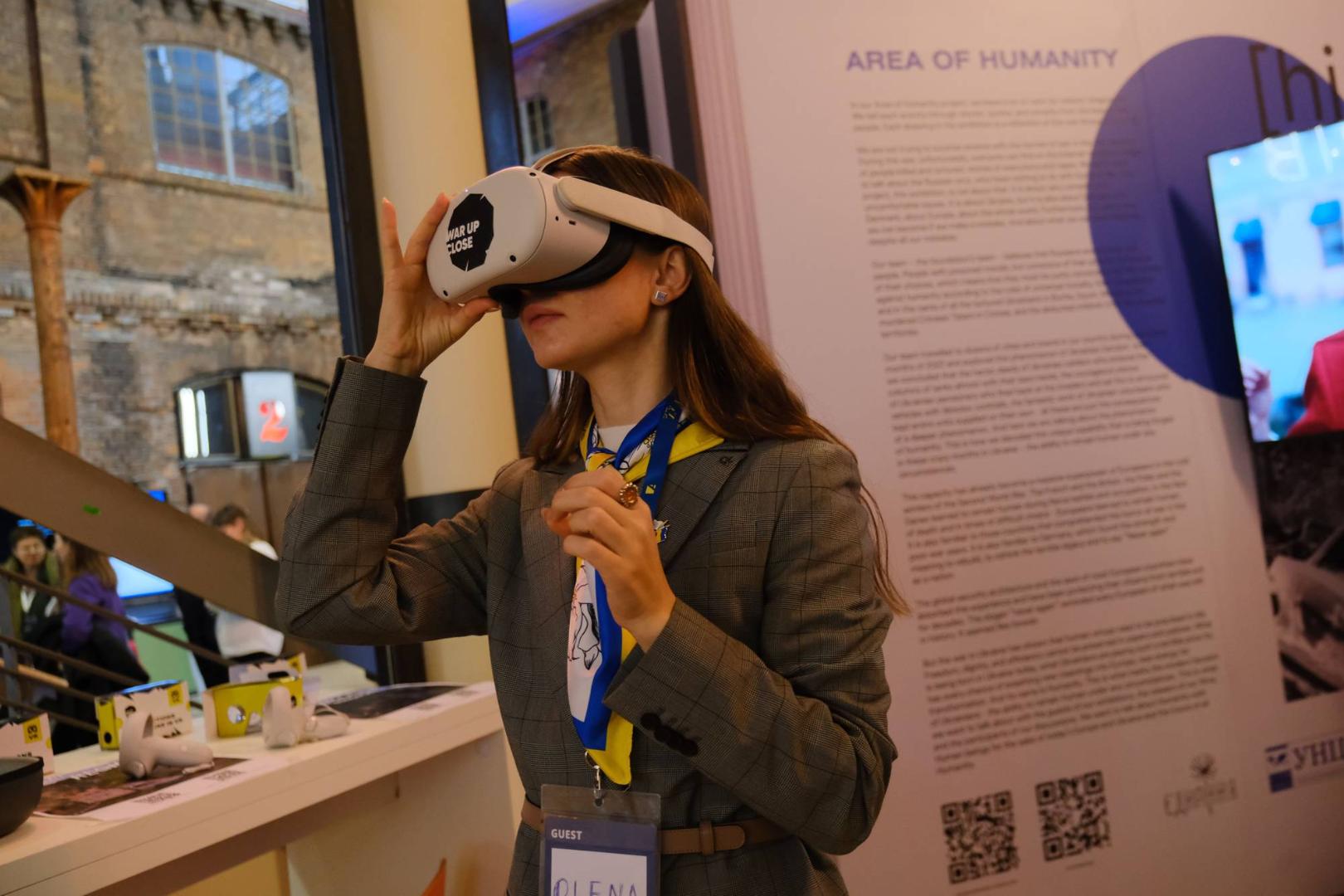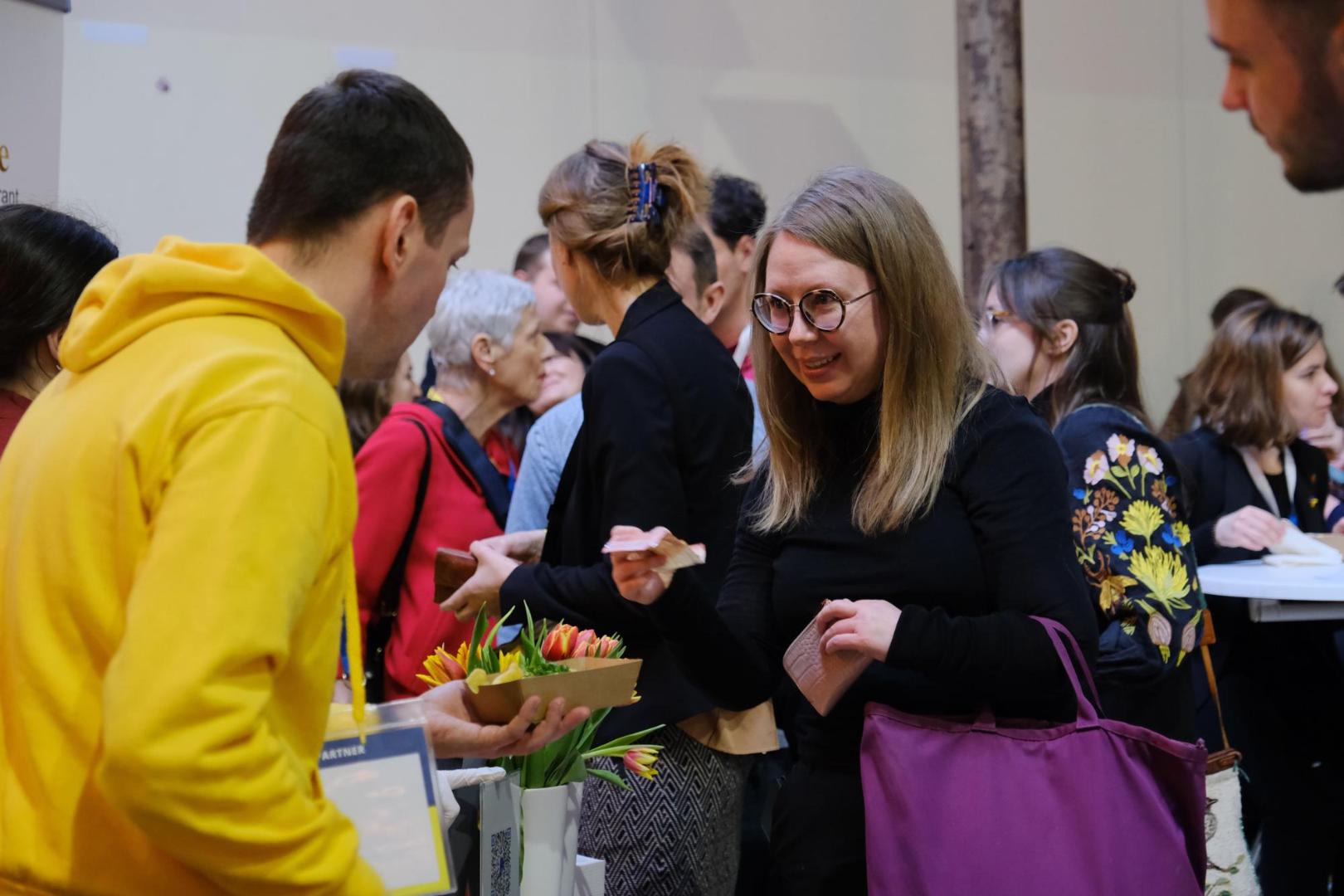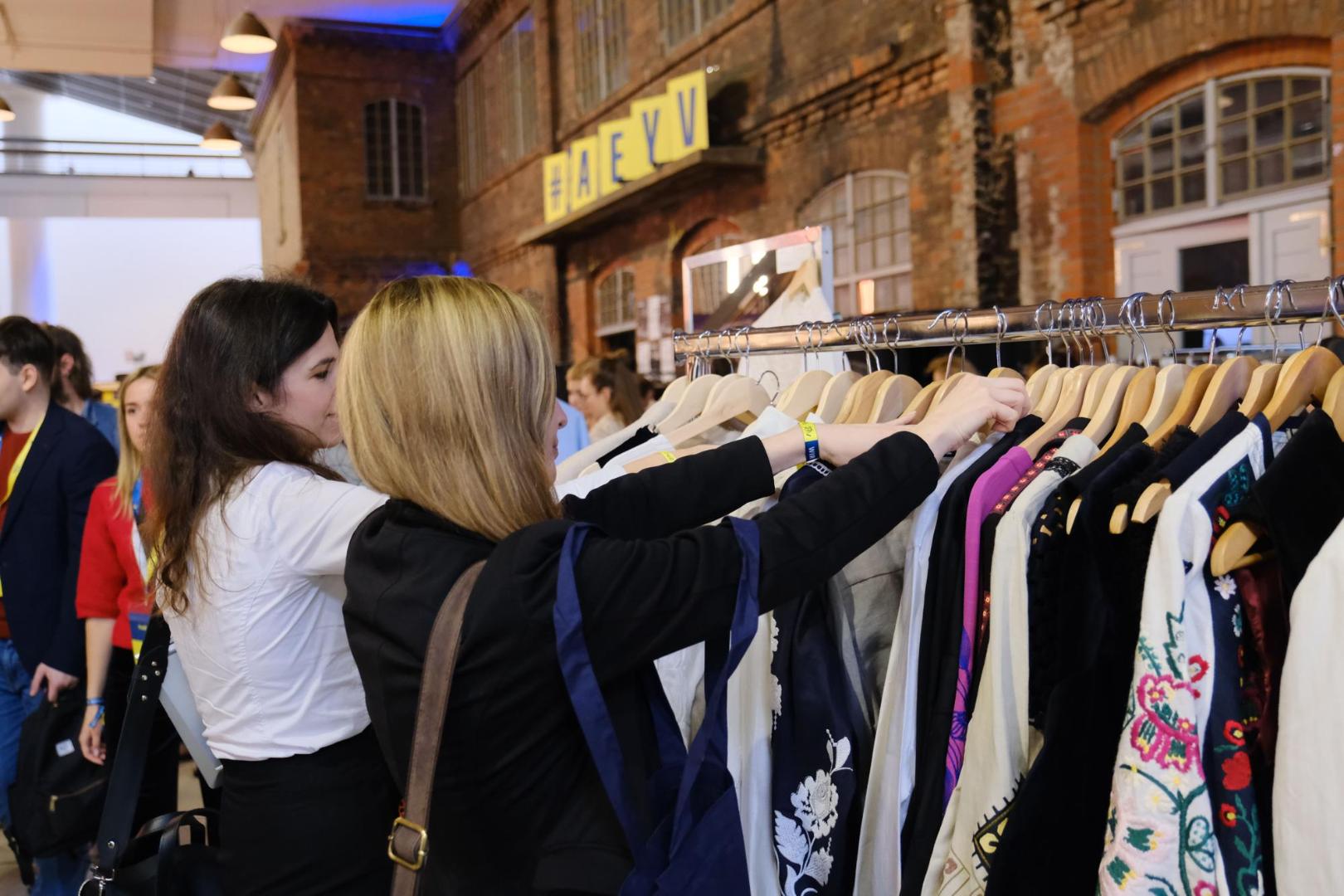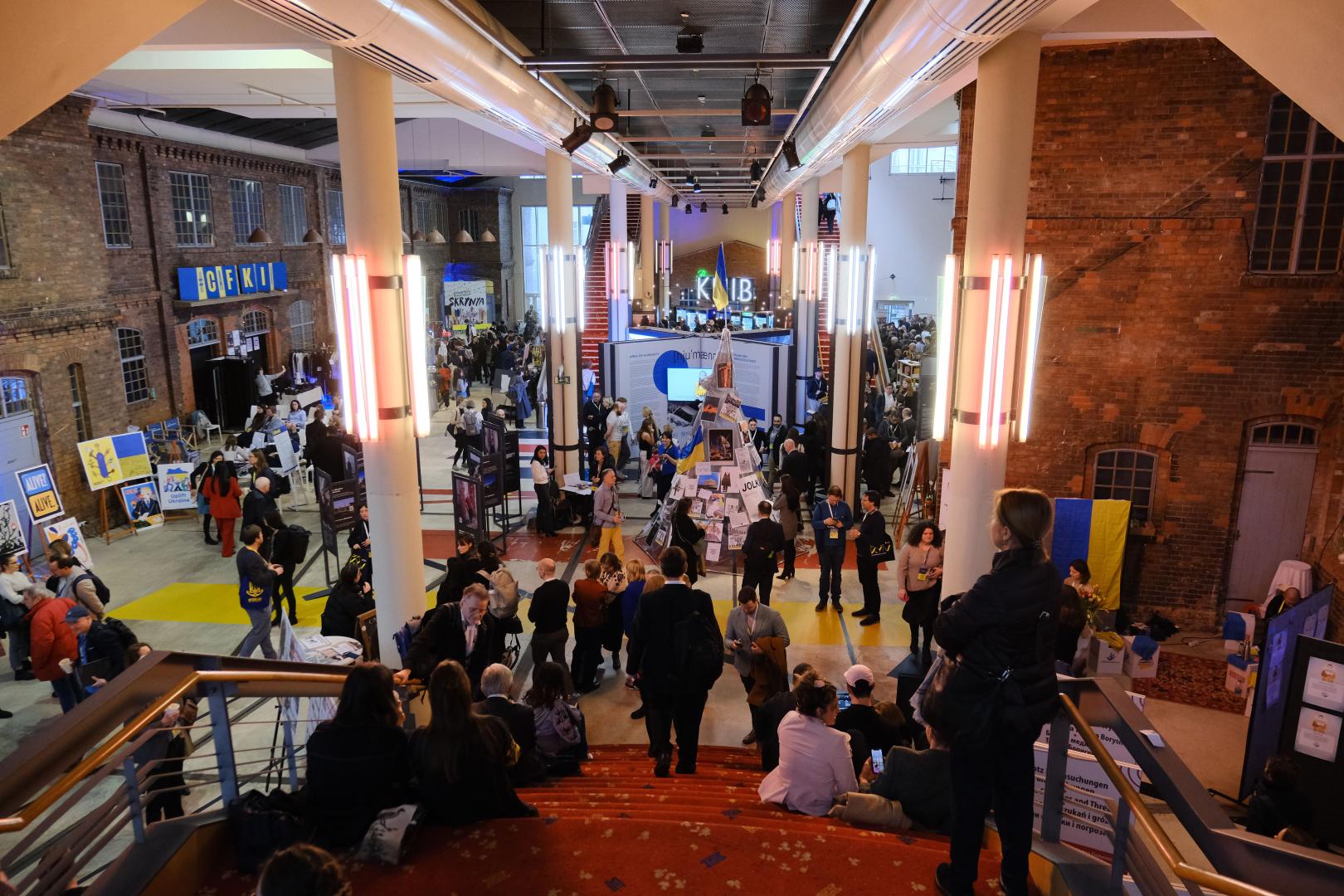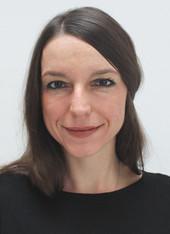Ursula Von der Leyen as a guest at Cafe Kyiv
"We stand firmly by Ukraine, and Ukraine can count on that!" - this was the message of the President of the European Commission, Ursula von der Leyen, in our Cafe Kyiv. "There is a broad alliance of international states standing by Ukraine," she emphasized, because: "Putin can never be allowed to win this war." The death of Alexei Navalny, which became known shortly before the start of the Munich Security Conference, illustrates just how brutal Putin is being in his own country. "The outcome of this war will shape our continent for years, even decades. Our security, our freedom, the enforcement of our values and our coexistence depend on it," said von der Leyen. One thing is certain: "Ukraine is fighting for us. We must never forget that."
Prof. Dr. Norbert Lammert, Kai Wegner, Oleksii Makeiev and Eva Yakubovska opened the event
"We have to ask ourselves: Are we doing enough? And we have to be self-critical: No, we are not!" - Prof. Dr. Norbert Lammert opened Cafe Kyiv 2024 with these words. The Governing Mayor of Berlin, Kai Wegner, also made it clear: "We must not be speechless! We must not stand by and watch. We must stay awake and do everything we can to support the Ukrainians in their fight for freedom." Wegner also referred to the city partnership between Berlin and Kyiv. "Berlin is the city of freedom and Kyiv WILL be the city of freedom - and together we are building a European future." Oleksii Makeiev, Ukraine's ambassador to Germany, emphasized that for him, Cafe Kyiv is a way of "coming home" and "a place of hope". The opening was accompanied musically by Ukrainian singers - the choir "Ukrainian Soloway".
Vladimir Klitschko in conversation with Paul Ronzheimer about the abduction of children in Ukraine
"If we don't get enough ammunition, after a certain time at the Munich Security Conference we will talk about Ukraine as a thing of the past and also about the Baltic countries. [...] The appetite of the aggressor is great," warns Vladimir Klitschko. Paul Ronzheimer, deputy editor-in-chief at BILD, conducted the interview and asked Klitschko questions about "Taurus". "I hope that the budget for it [...] will be released in the States. [...] Eventually we will get it, but we are losing time again. We are losing human lives," Klitschko makes clear. "There is never enough support as long as this war is going on. We are not only fighting for our survival, but also for your survival. Believe it or not," appeals Wladimir Klitschko to all Europeans.
Since the beginning of the war, the lives of millions of children in Ukraine have been threatened. Joshua Hofert (Terre des hommes) and Lanna Idriss (SOS Children's Villages) reported on this. They all described their first-hand experiences and made clear what the children in Ukraine currently need most urgently and how they can succeed in coming to terms with the traumatic experiences of the war. Hofert spoke of around 19,000 children. Russia is clearly committing massive violations of human rights and children's rights by abducting them. It is no coincidence that the Human Rights Court in The Hague is currently dealing with the issue. In a best-case scenario, the children will return and continue to be traumatized for many years. That is why we now need to talk about civil society structures and "the German government should be more active here", said Hofert.
The role of the EU
MEPs David McAllister and Viola von Cramon discuss the role of the EU in reconstruction with representatives of the European Commission and the European Investment Bank. They also discussed the challenges that have already been faced and those still to come with regard to Ukraine's possible accession to the EU. However, it also became clear that the EU needs reforms, particularly in the area of decision-making procedures (unanimity of the member states) and in agricultural policy. Viola von Cramon warned and at the same time made an appeal to the audience: "Putin will test NATO - be it in Poland, in the Baltics, or in Finland", and "Please vote democratic forces in June!" when the European elections are held.
The security situation in Ukraine and the possibilities of NATO membership
On the panel "Confronting Russia", Ralf Fücks, founder and director of the Zentrum Liberale Moderne, Claudia Major, Stiftung Wissenschaft und Politik, Mykola Bielieskov, National Institute for Strategic Studies and Lange Nico from the Munich Security Conference discussed. Ralf Fücks made it clear that "the extent of what we are prepared to deliver to Ukraine depends on our political commitment". The motto is still: "Too little, too late." In addition, there is still a certain lack of clarity in Europe regarding the political goal: "Do we want Ukraine to win, or do we only want to support it to the extent that it does not collapse?" There is also an urgent need to close the loopholes in the sanctions, especially with regard to Russian oil exports. When discussing Ukraine's admission to NATO, Claudia Major demanded: "We have to push for a formal invitation." Unfortunately, however, there is great political hesitation among the most important member states. According to Nico Lange, however, there is still "a chance that Ukraine will be invited to the NATO summit in Washington."
Help for Ukrainian archive
The Pilecki Institute in Berlin, Arolsen Archives and the Scientific Services of the Konrad Adenauer Foundation organized a fundraising campaign for the demining of the archive in Vysokopillya (not far from Kherson).
Art, music and culinary delights
Interesting and interactive workshops were once again offered this year, including on fighting corruption in Ukraine and a simulation game on EU security. The art installations and the VR project "War Up Close" were a popular photo spot. There was no shortage of music either: music performances, bands and a midnight concert with classical Ukrainian composers and a piano concert at the end. Ukrainian author Natalka Sniadanko read from one of her novels, the Oscar-nominated documentary film "20 Days in Mariupol" was shown and Ukrainian design could be admired and purchased at the pop-up charity market Skrynya. And, of course, the culinary delights from the German-Ukrainian restaurant "Marone" and drinks from the "Space Meduza Bar" were not to be missed.
Around 5,000 visitors showed that we continue to stand by Ukraine!
Photo Credits: ©Nastya Melnik & ©AntoninaPolukhina



